About the Olympic Games
The Olympic Games are competitions between athletes in individual and team disciplines, not between countries. They bring together athletes who have been nominated by their national Olympic committees and whose applications have been accepted by the International Olympic Committee. The Olympic Games, which began to be held in ancient Greece 3,000 years ago, have today become the most prestigious sports competition in the world.
Since 1994, the Summer and Winter Olympic Games have been held separately, alternating every two years. The highest instance, for any question related to the Olympic Games, is the IOC.
The meaning of the word OLYMPIAD
The Olympiad is a period of four consecutive calendar years beginning on January 1 of the first year and ending on December 31 of the fourth year.The Olympiads are counted consecutively from the first modern Olympic Games, which were celebrated in Athens in 1896.
History
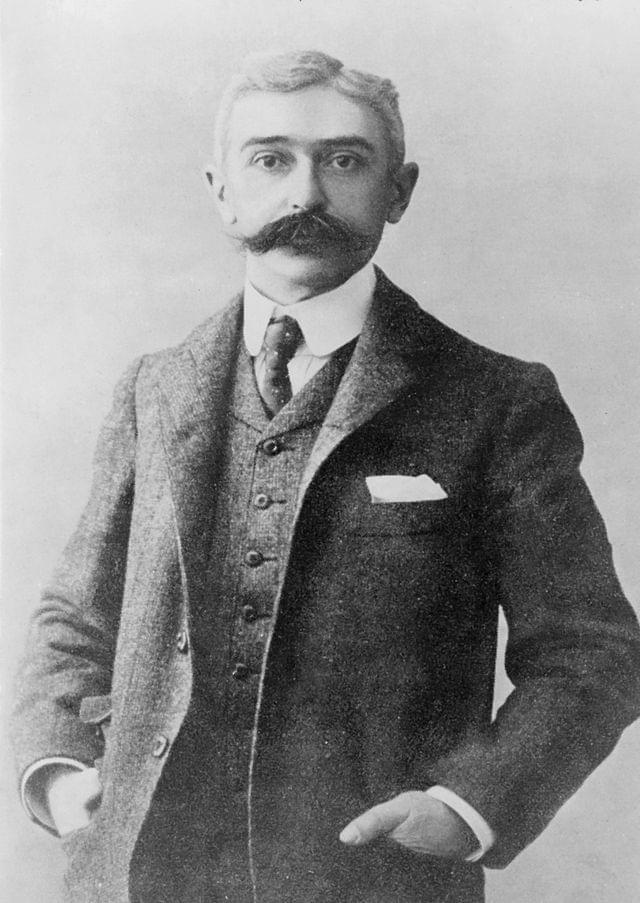
The French pedagogue and humanist Pierre de Coubertin, well acquainted with the history of antiquity, came up with the idea that the Olympic Games should be renewed in order to give sport an organized and humanized content. With persistent work, he organized the Founding Congress of the International Olympic Committee in Paris in 1894, for which he also drafted the rules. In the great amphitheater of the Sorbonne in Paris in 1894, 79 delegates and 49 sports organizations from 12 countries unanimously accepted the decision to renew the Olympic Games. According to the decision of the first congress of the International Olympic Committee, the first renewed Olympic Games were held in the capital of Greece, the birthplace of the Olympic Games, Athens, in 1986. The first fundamental principle of the modern Olympic Games, established by Pierre Coubertin, is that there must be no discrimination against any athlete for racial, religious, national or political reasons. By renewing the Olympic Games, Pierre de Coubertin wanted to renew the spirit of the festivities along with the sports competition. That's why along with the athletes' competitions, the artists' competitions that were introduced by the Swedes in 1912 were also renewed. These competitions were held for the next seven games before ending after London in 1948.
"The most important thing at the Olympics is not victory, but participation, just as in life, the essence is not victory, but struggle."
Pierre de Coubertin
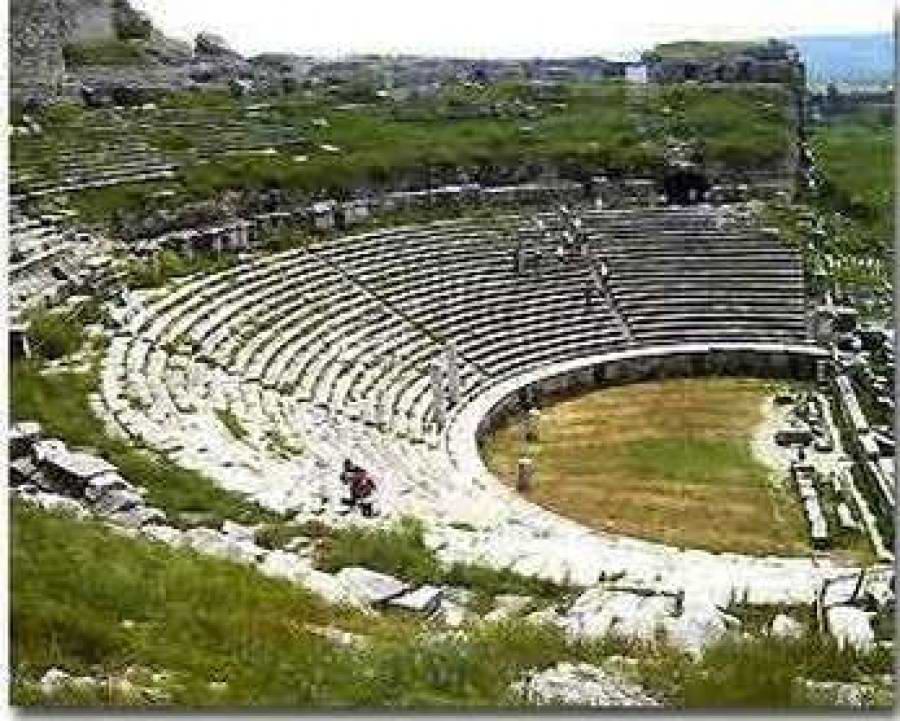
Before 776 BC
Ancient Greece
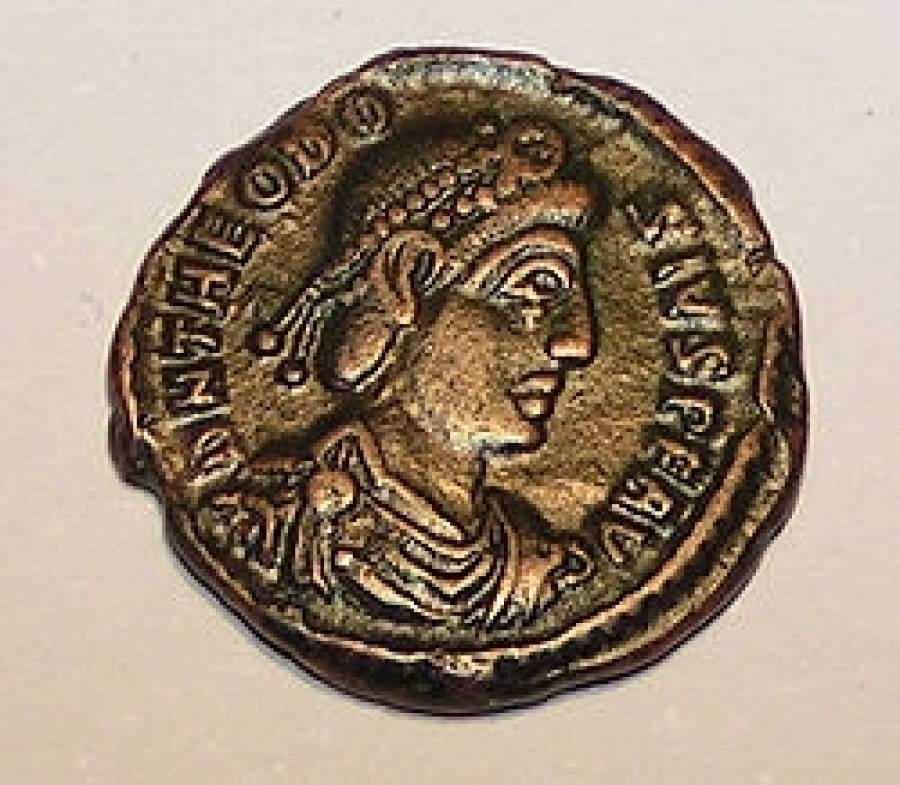
394 AD
The Roman Emperor Theodosius I abolished the Games, as part of reforms against pagan customs.
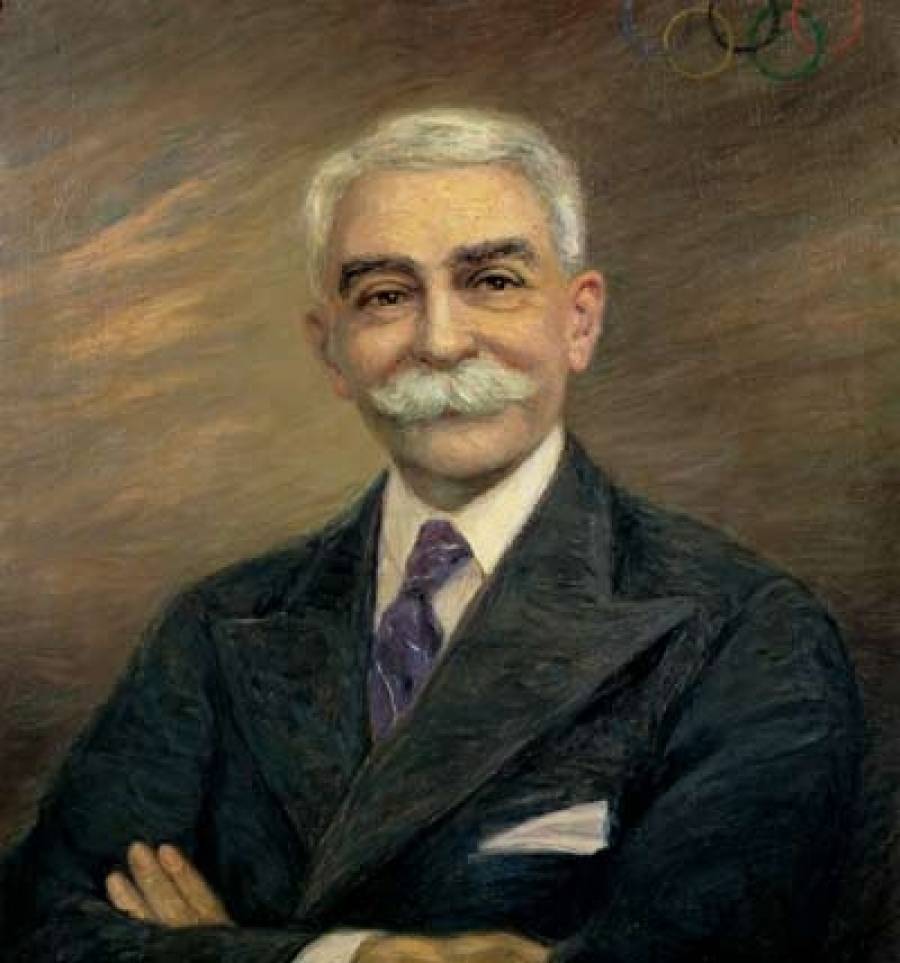
1894.
At the request of Baron Pierre de Coubertin, the International Olympic Committee (IOC) was founded.At the same congress, it was decided that the first modern Olympic Games would be held in Athens, and after that they would be held every 4 years.
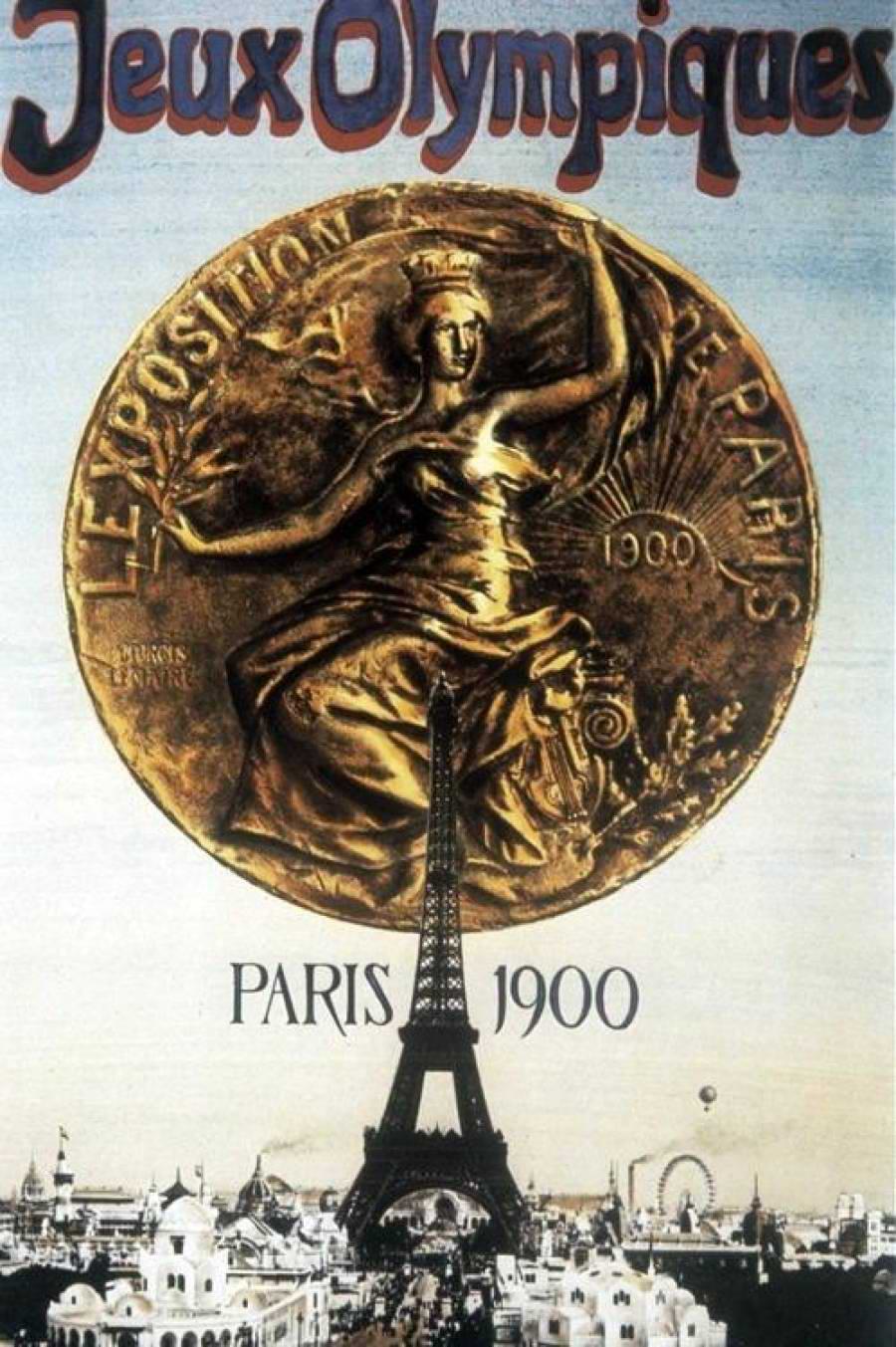
1896.
Olympic Games in Athens
The first modern Olympic Games. 14 countries are represented by 245 men competing in 43 disciplines.Women do not compete, as de Coubertin believes their participation would be "impractical, uninteresting, unattractive and improper."
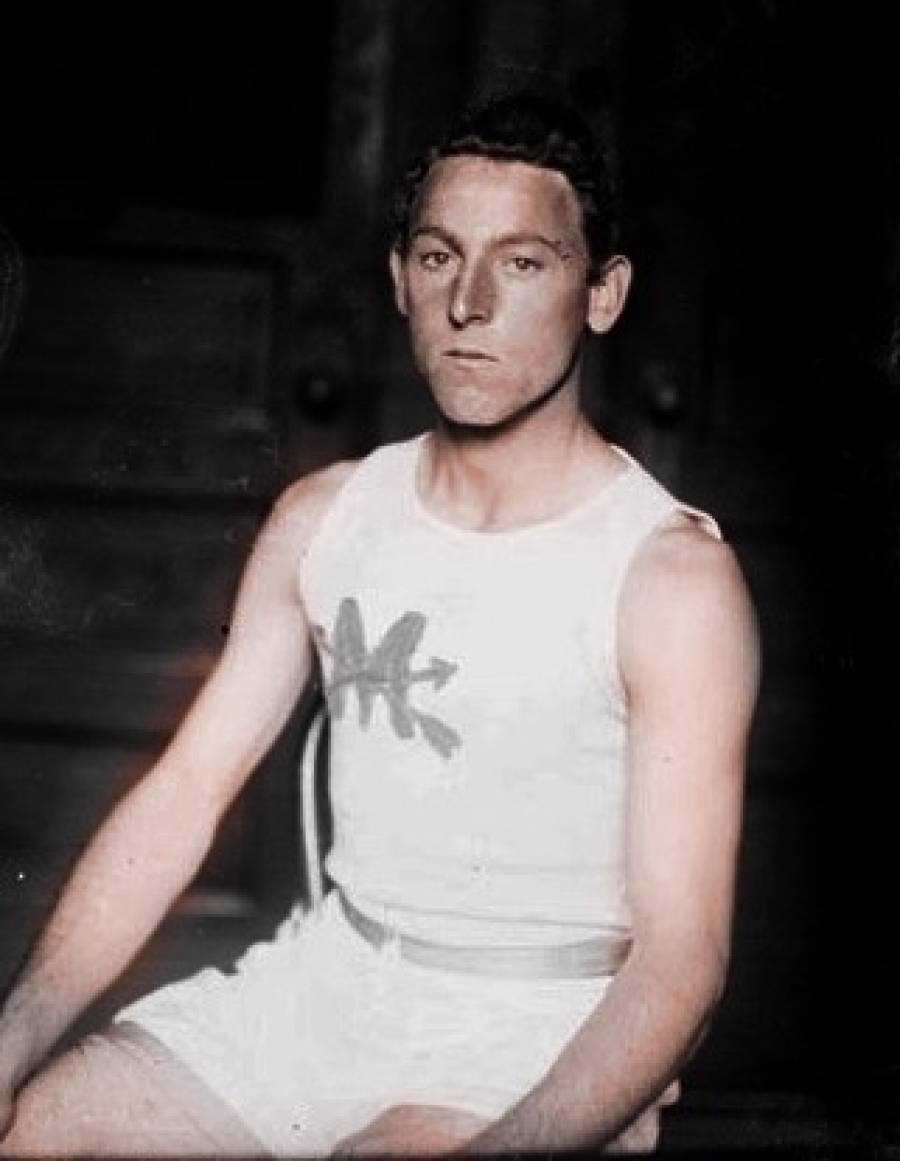
1904.
Olympic Games in St. Louis
Only 13 countries appeared.Fred Lorz drives in a car for 18 kilometers during the marathon, but is briefly taken as the winner. The Amateur Athletic Association made a decision to ban him from competition for life, but withdrew that decision after Lorz's public apology.
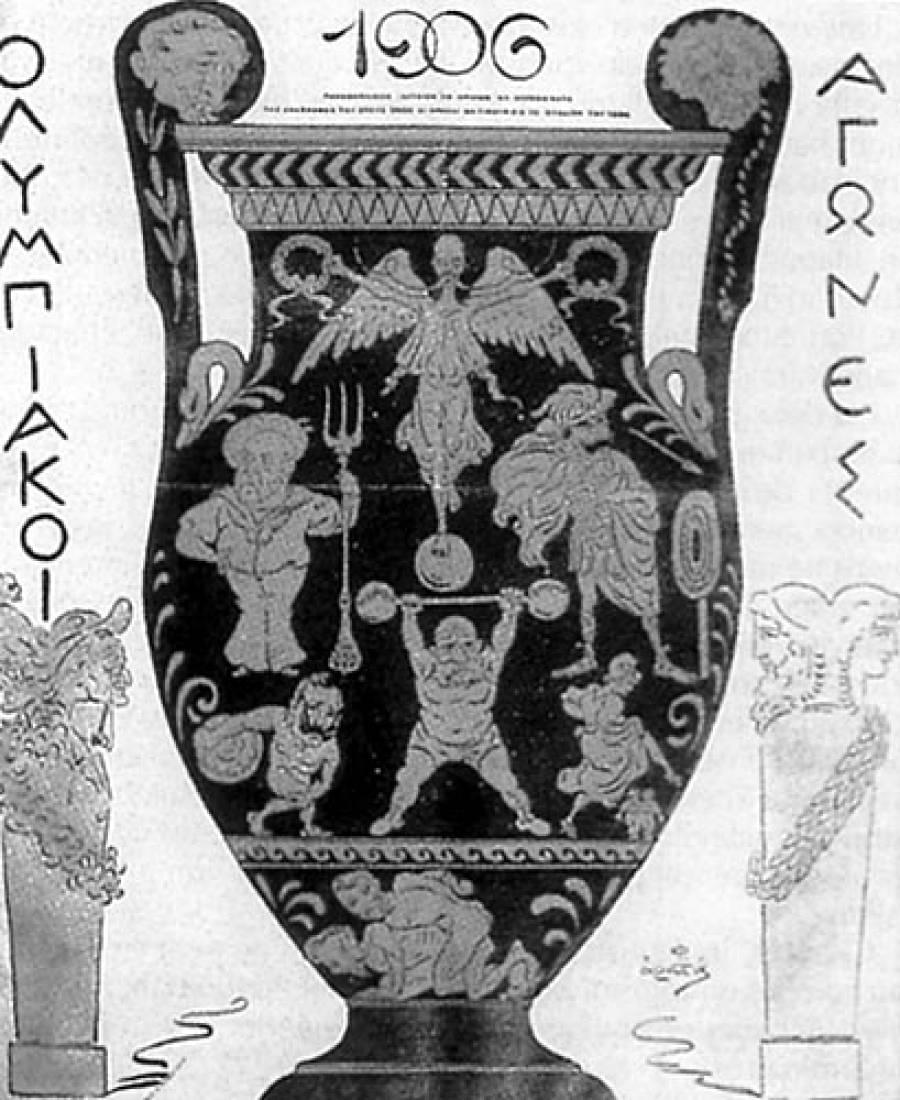
1906.
The first, last, and only Olympic Games were held in Athens, as the Greeks planned to hold interim Games between the Olympics every four years. While they reinforced the Olympic Games' reputation for slackness, the medals won at those Games were considered unofficial by the IOC.
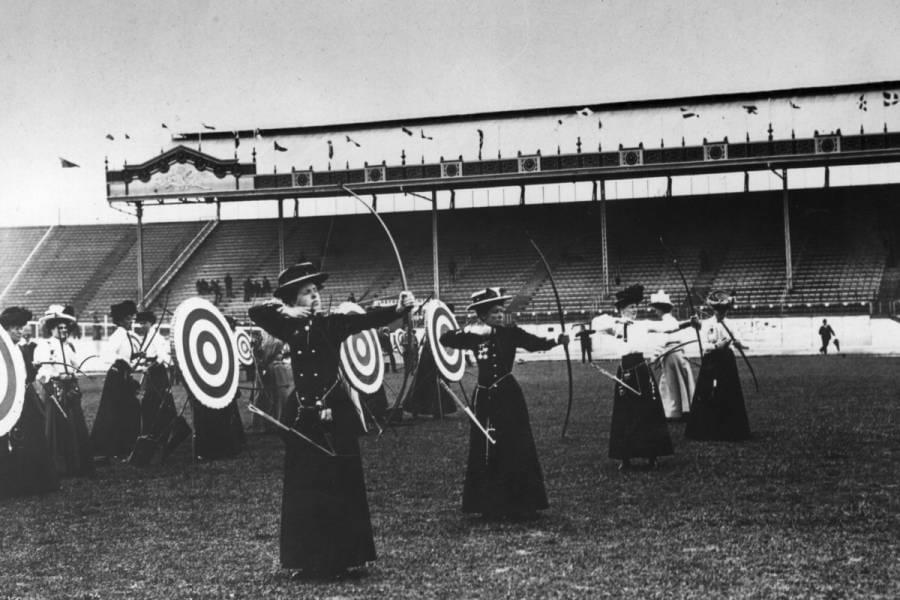
1908.
Olympic Games in London
The eruption of Mount Vesuvius in 1906 required the Games to be moved from Rome to London. For the first time, athletes entered the stadium behind their national flags. There were more than 2,000 competitors in more than 100 disciplines.Italy's Dorando Pietri needed help at the finish line of the marathon but was declared the winner before being disqualified in favor of Johnny Hayes of the USA.
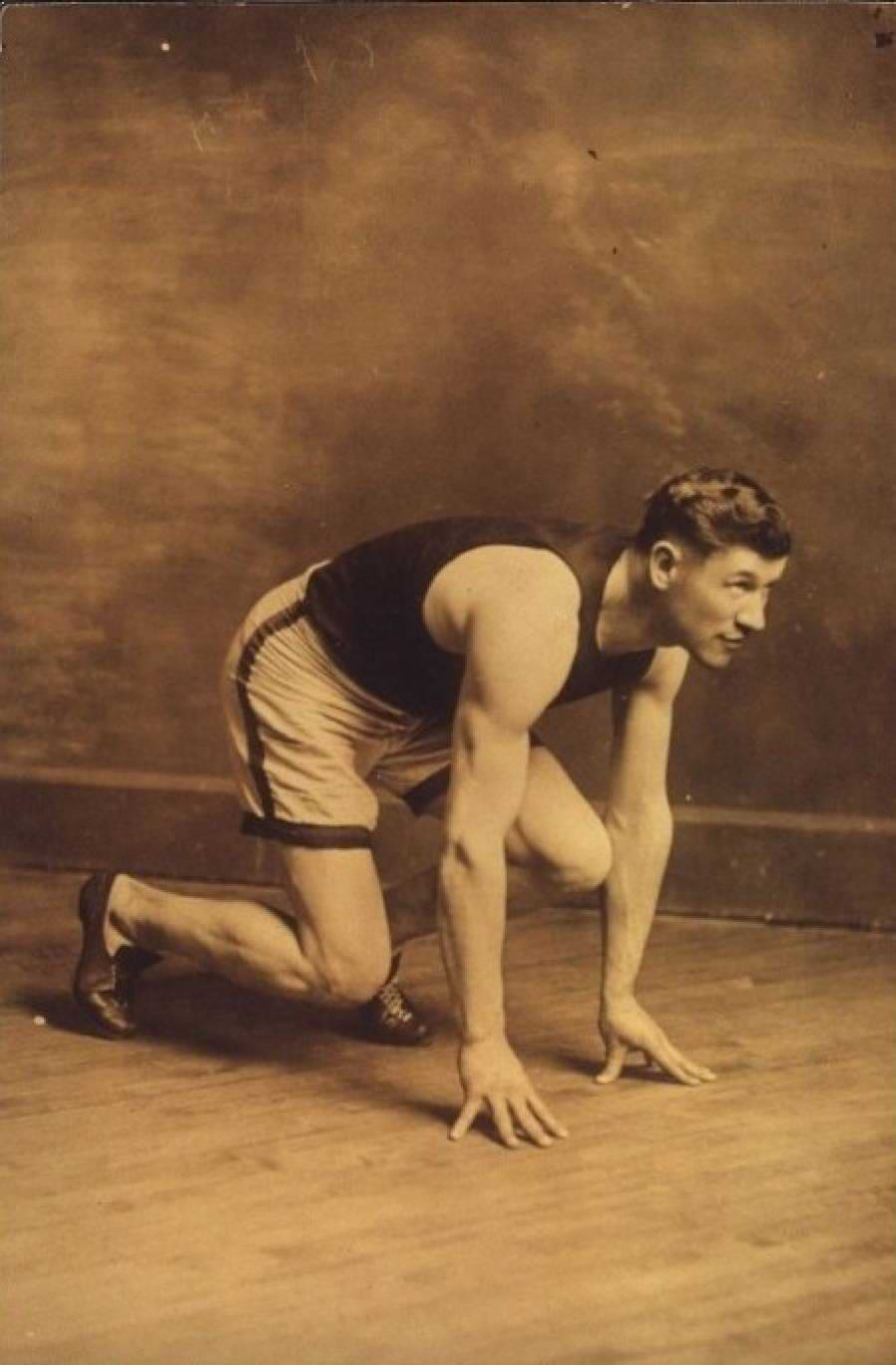
1912.
Olympic Games in Stockholm
American Jim Thorpe dominates the Games, taking gold in the pentathlon and decathlon.Finland begins its dominance in long distance running, Hannes Kolehmainen wins three gold and one silver medal.Women are competing in swimming for the first time, but none of them are from America, which forbids its female athletes from competing in events without long skirts.
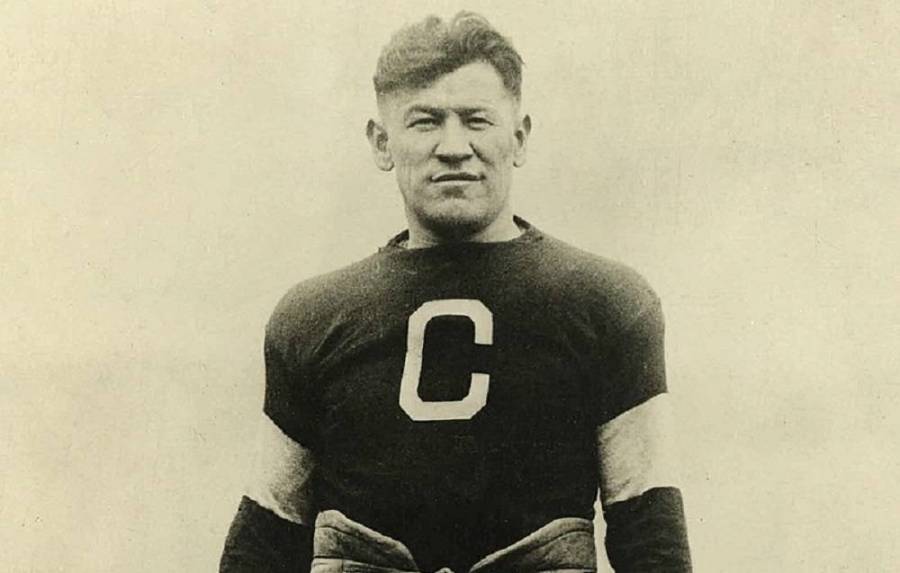
1913.
Jim Thorpe's medals were taken when it was discovered that he was paid $25 a week to play baseball in 1909 and 1910. The Olympic Games are strictly limited to amateur players.
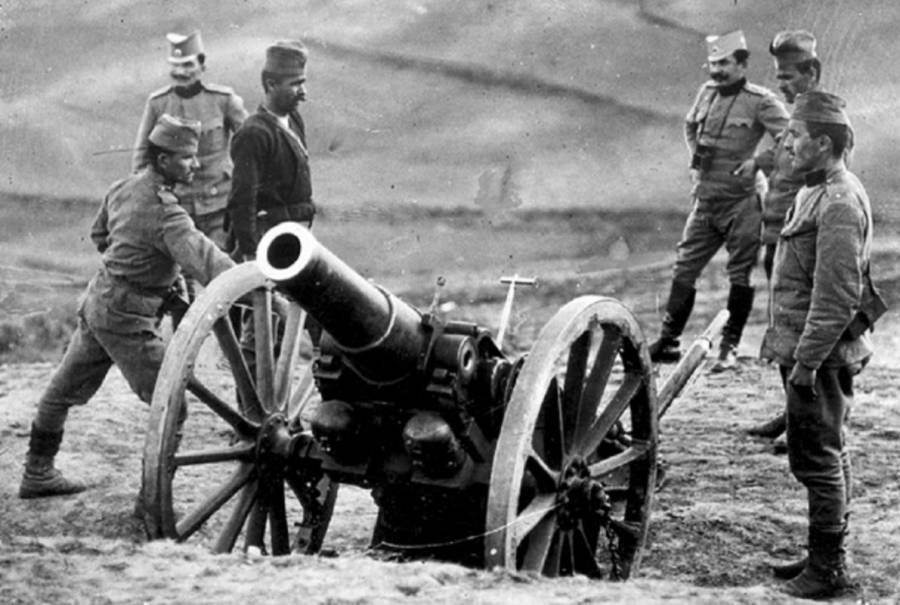
1916.
The games were canceled because of the First World War.
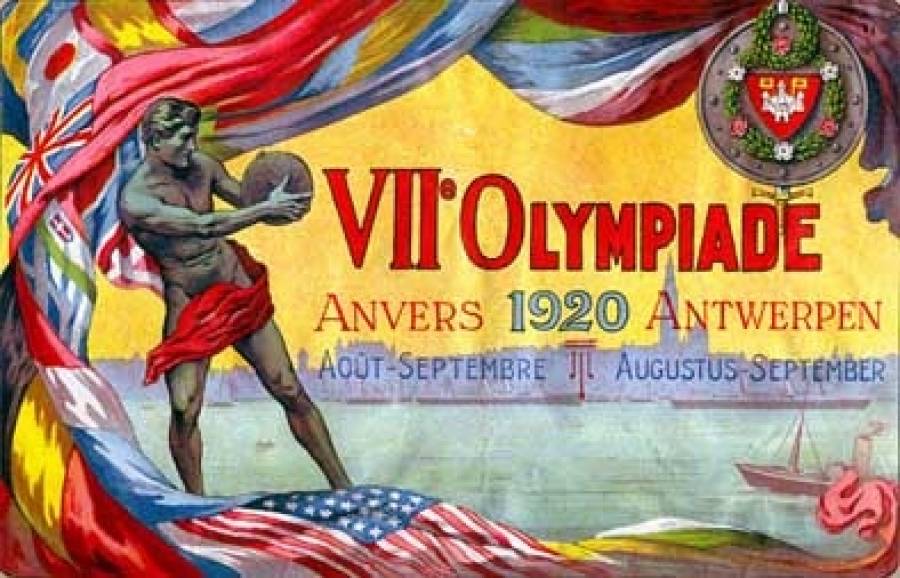
1920.
Olympic Games in Antwerp
The Olympic flag was introduced, as well as the Olympic Oath.Germany, Austria, Belgium, Hungary and Turkey were not invited, because they were on the wrong side of the Great War. Distance runner Pavo Nurmi wins three medals for Finland.
Philip Noel-Baker is the only Olympian to receive the Nobel Peace Prize.
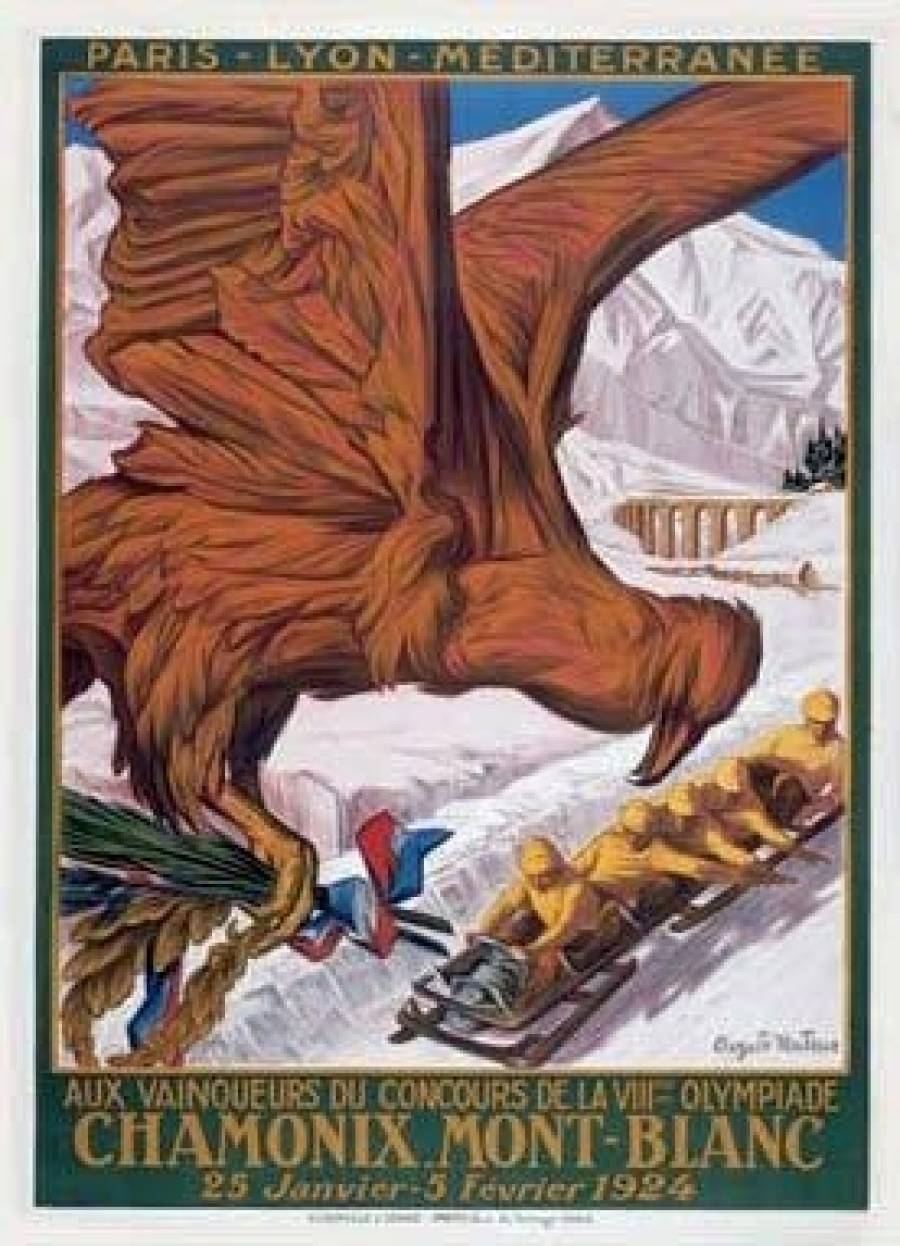
Winter 1924.
Winter Olympics in Chamonix
The "International Winter Sports Week" took place in Chamonix, dominated by the Scandinavians. Two years later, this event was retroactively given the status of the first Winter Olympic Games.Due to an error in calculating the results, the American Anders Haugen took fourth place in ski jumping, behind the Norwegian Torleif Haug, which was discovered in 1974.
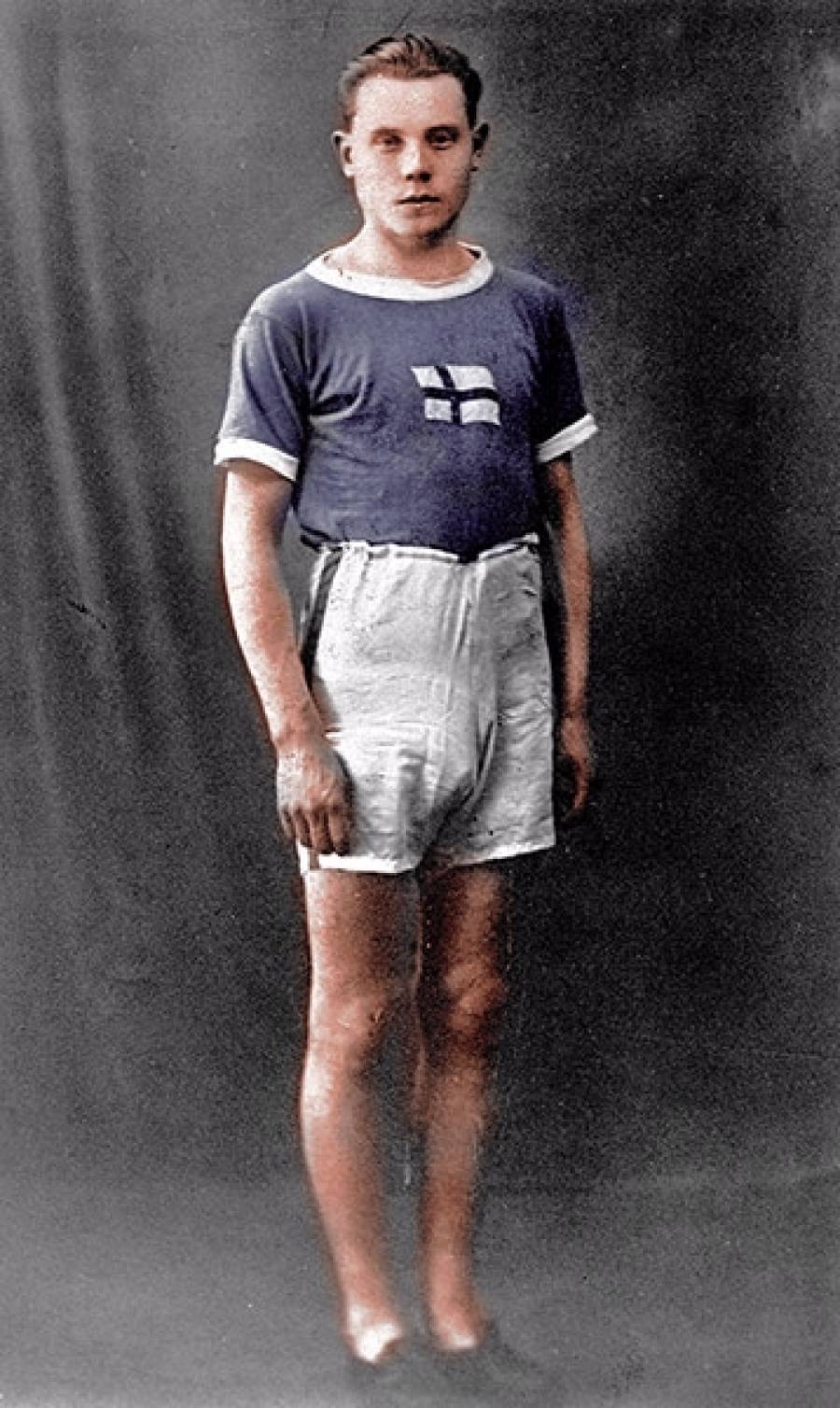
Summer 1924.
Originally planned to be held in Amsterdam, the Games are moved to Paris at the request of Baron de Coubertin. He was about to retire, and he wanted to see the Games in his hometown one last time.Germany is still banned from participating, but four other countries that were banned in 1920 have been reinstated.Pavo Nurmi wins five gold medals, his teammate, Will-Ritola, wins four.Johnny Weissmiller wins three golds and a bronze in aquatics; he later became famous for his role as Tarzan.
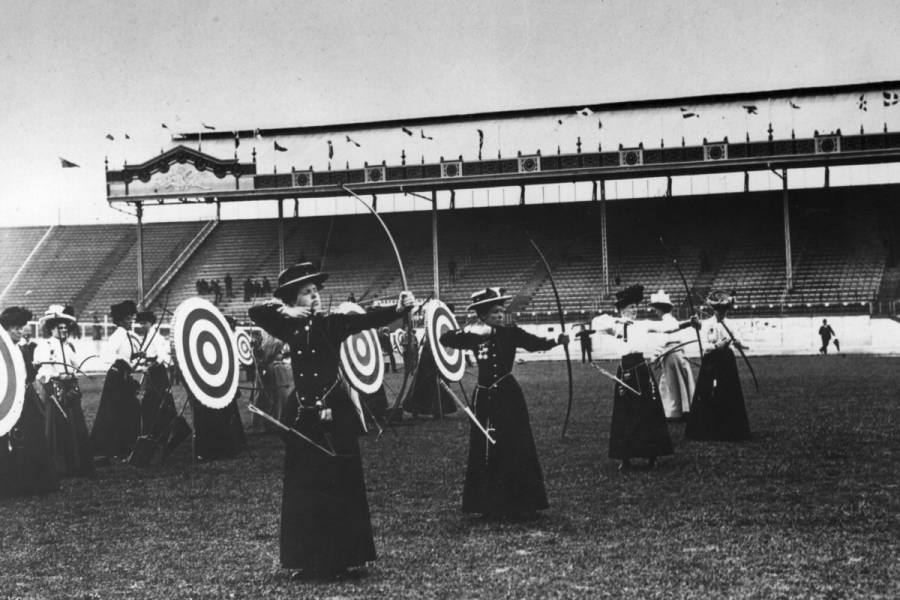
1925.
The IOC explains that "An amateur is one who devotes himself to sport for sport's sake, without deriving, directly or indirectly, the means of existence. A professional is one who derives his means of existence wholly or partially from sport." They prohibit such actions as compensating athletes who take time off work to compete, making it harder for working-class athletes to participate.
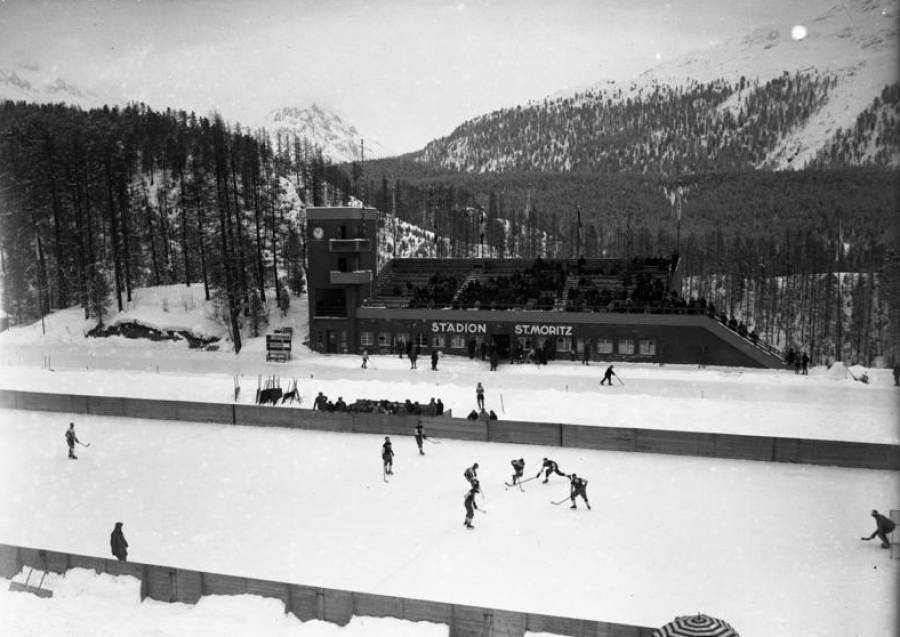
Winter 1928.
The Winter Olympics were accompanied by warm weather, which slowed down certain disciplines and canceled the 10,000-meter cross-country skiing race.Gillis Grafstrom of Sweden wins the last of her three gold medals in a row in figure skating; Norway's Sonja Heni will be tied for that feat, winning the first of her three gold medals in a row in figure skating at the tender age of 16.
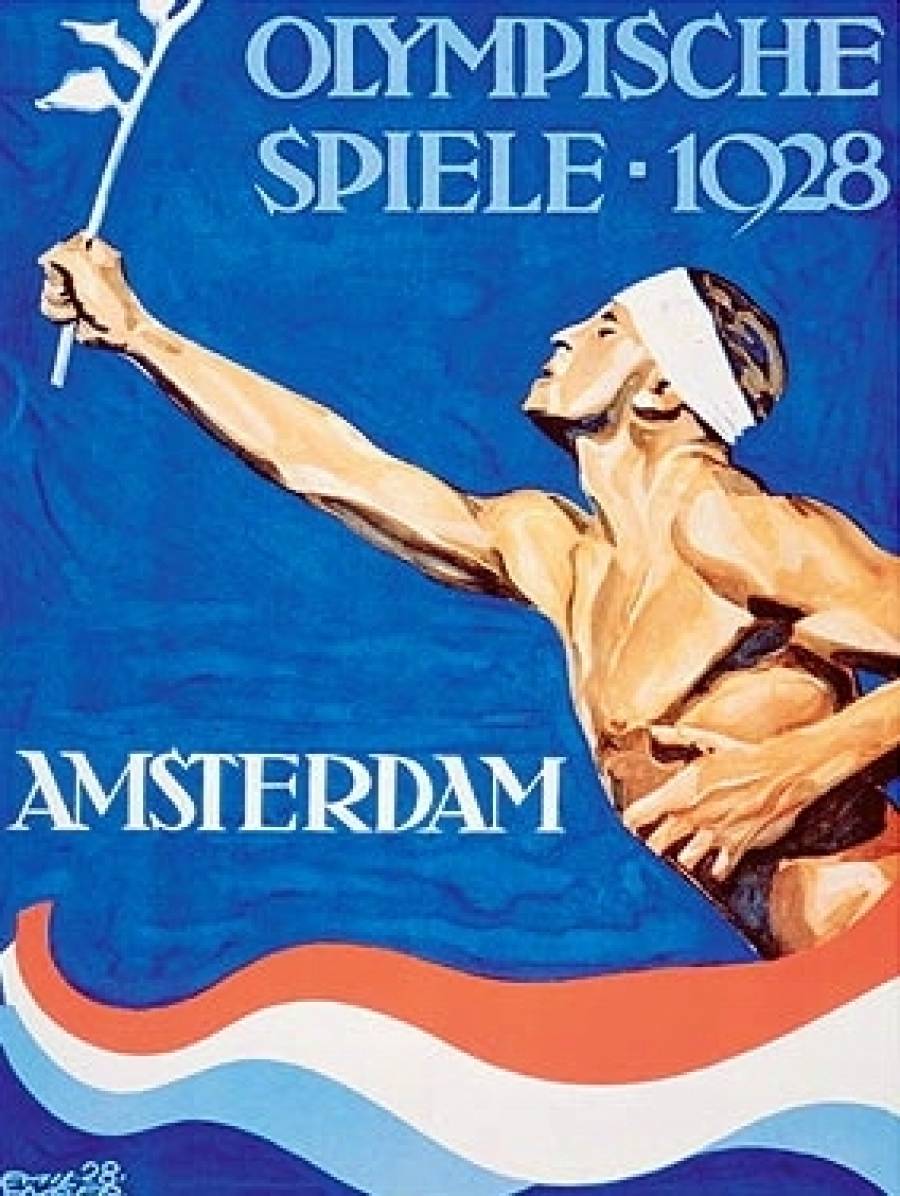
Summer 1928.
Summer Olympic Games in Amsterdam.The Olympic flame was presented.Germany is coming back.Pavo Nurmi takes three more medals, including one gold.Women compete in athletics for the first time, however, too many collapses at the end of the 800m cause the event to be banned until 1960.Luigina Giavoti became the youngest medal winner ever and so, at only 11 years and 302 days, she helped the Italian gymnastics team to take silver.
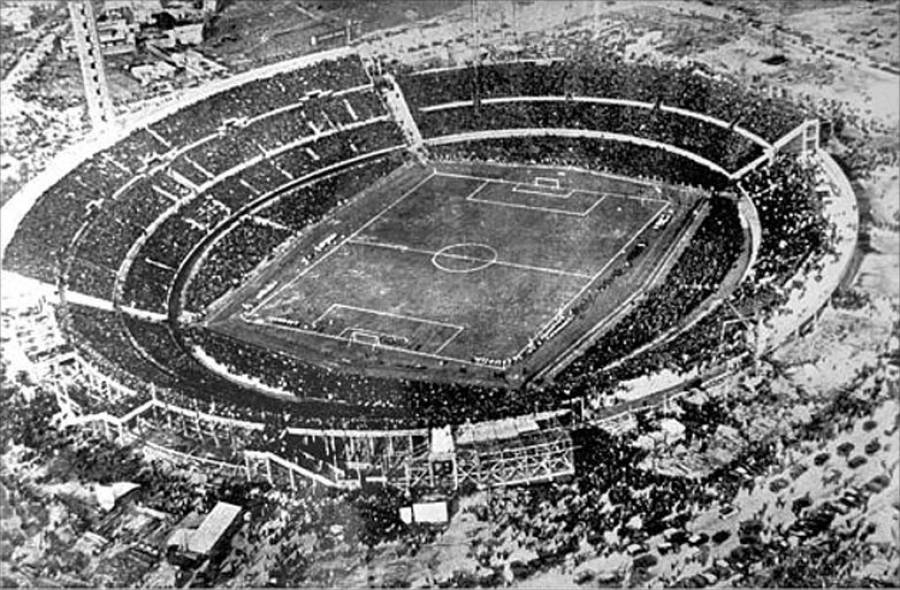
1930.
The International Federation of Association Football (FIFA) holds the first FIFA World Cup in Montevideo, Uruguay, in large part because of Olympic restrictions against professional athletes.The World Cup is held every four years from this day onwards, with the exception of the years during the Second World War.
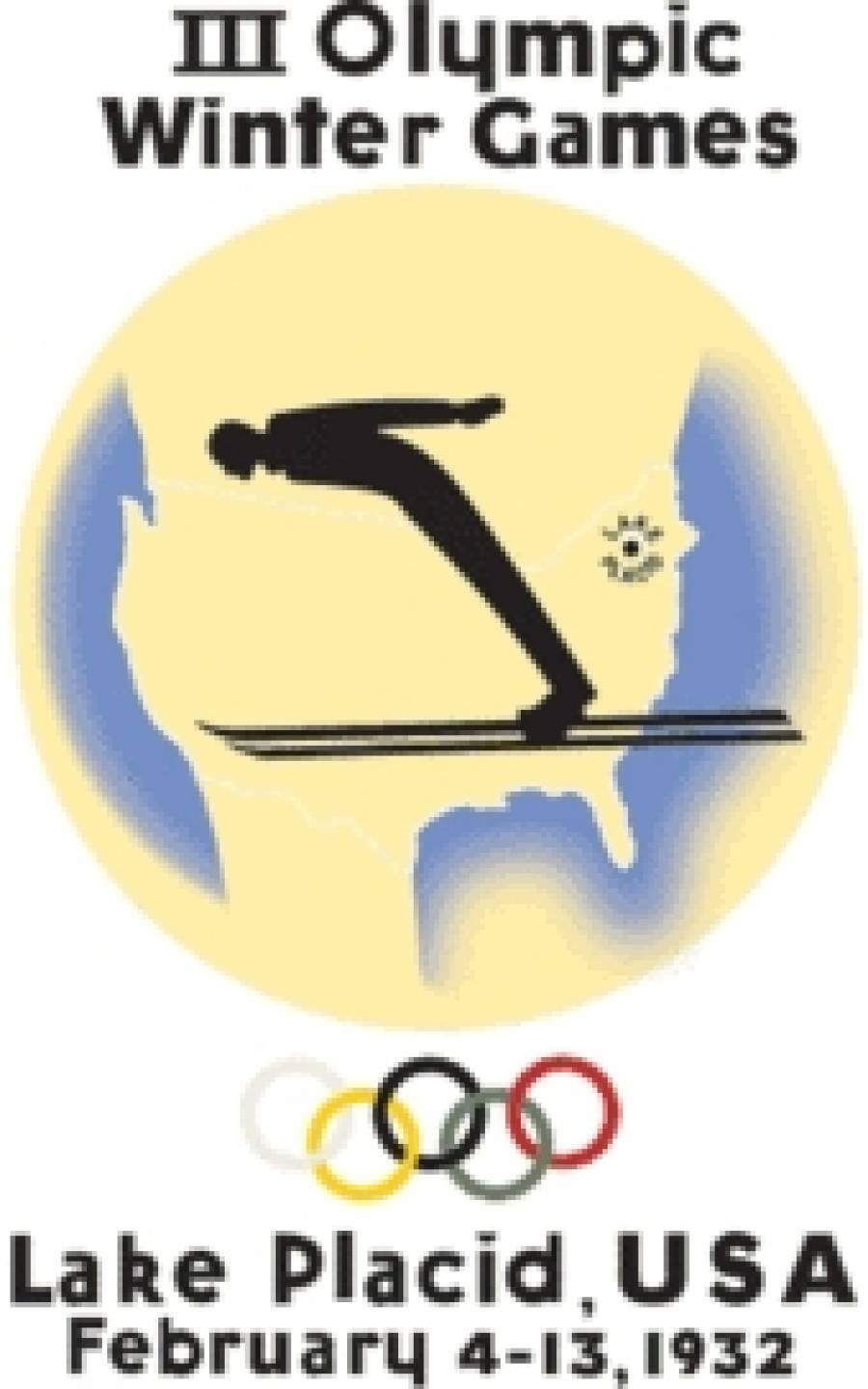
Winter 1932.
Winter Olympics in Lake Placid.Canada continues its unbeaten streak in hockey, taking home gold for the fourth time.The American bobsled team, led by Billy Fiske, wins gold; the team includes Eddie Egan, who was the boxing champion at the 1920 Games.
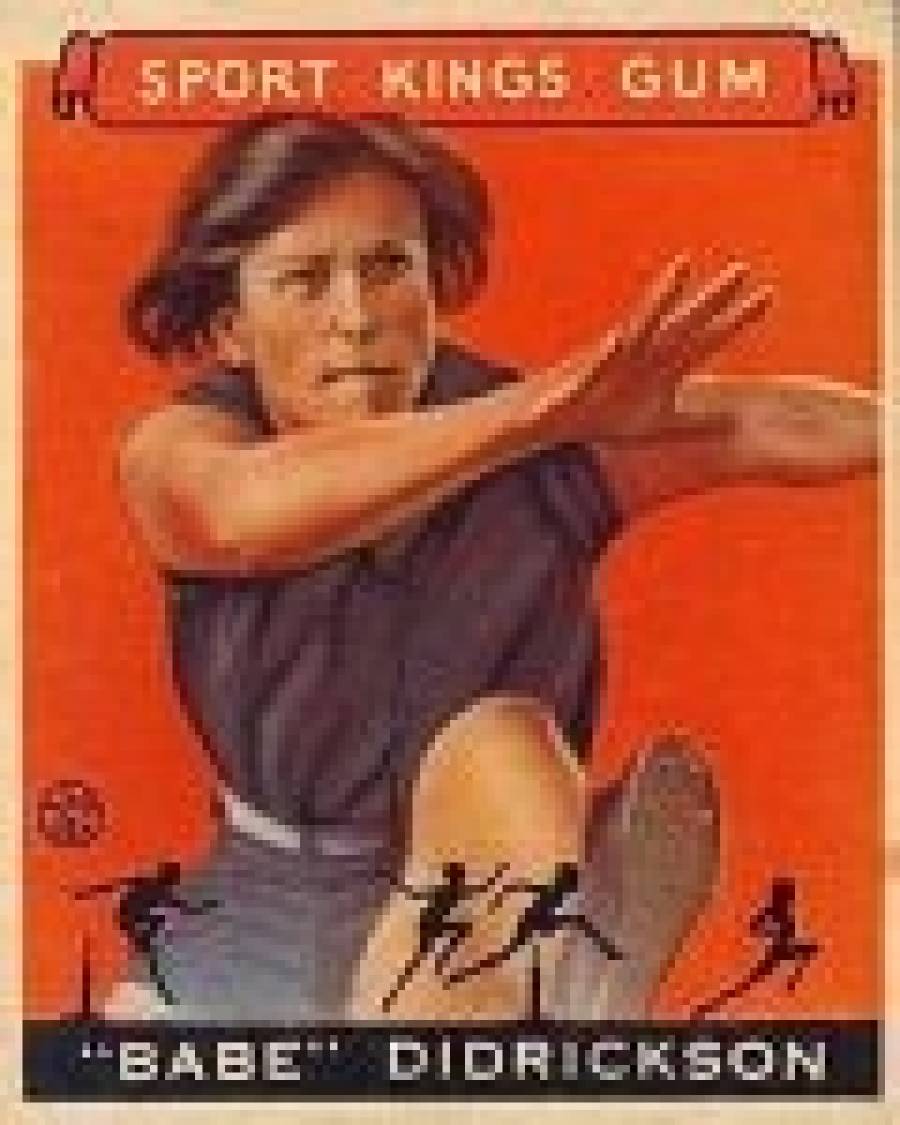
Summer 1932.
Summer Olympics in Los Angeles.Pavo Nurmi was banned from the Games in Los Angeles for the reason that, on the way to the game in Germany, he asked for too much money for travel expenses.No football competition.Babe Didrickson won gold medals in the javelin and hurdles.She would have tied for gold in the long jump as well, but her jumping style was ruled illegal.
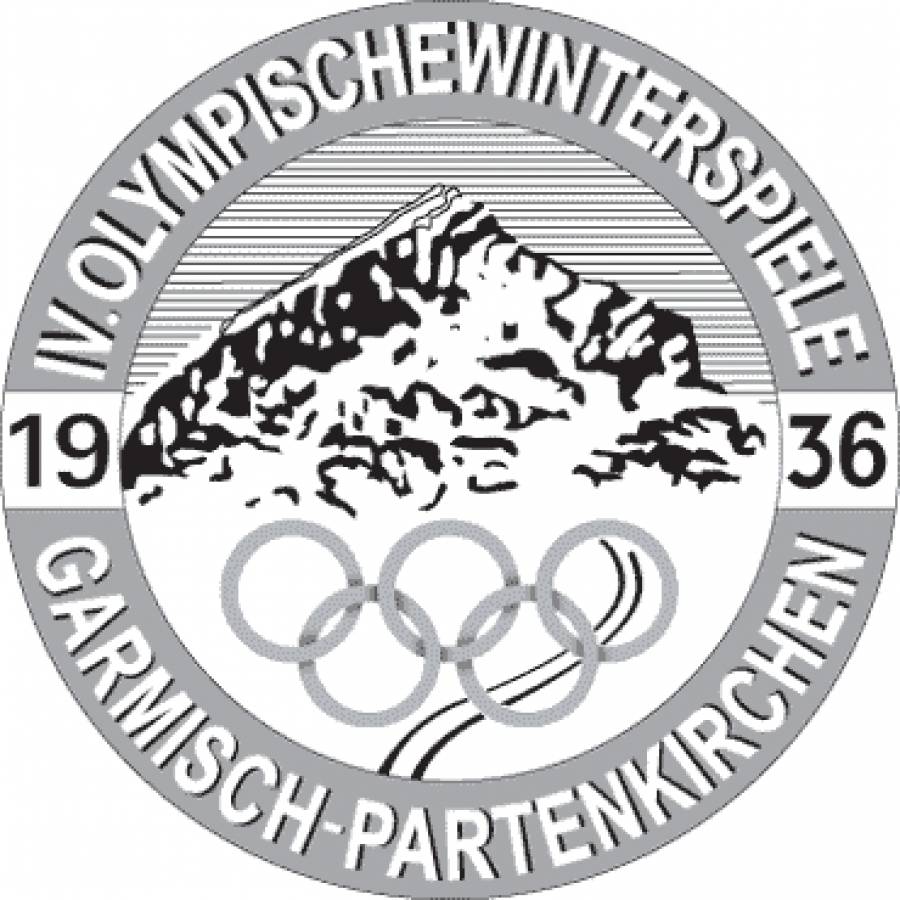
Winter 1936.
Winter Olympic Games in Garmisch-Partenkirchen.The alpine skiing competition was held for the first time, but the ski instructors were banned because they were professionals. This led to boycotts by Austria and Switzerland and debate over no skiing events at the 1940 Games.Canada finally loses the ice hockey match, and Great Britain takes the gold. Only a complete nitpicker would point out that almost all British players actually lived in Canada.
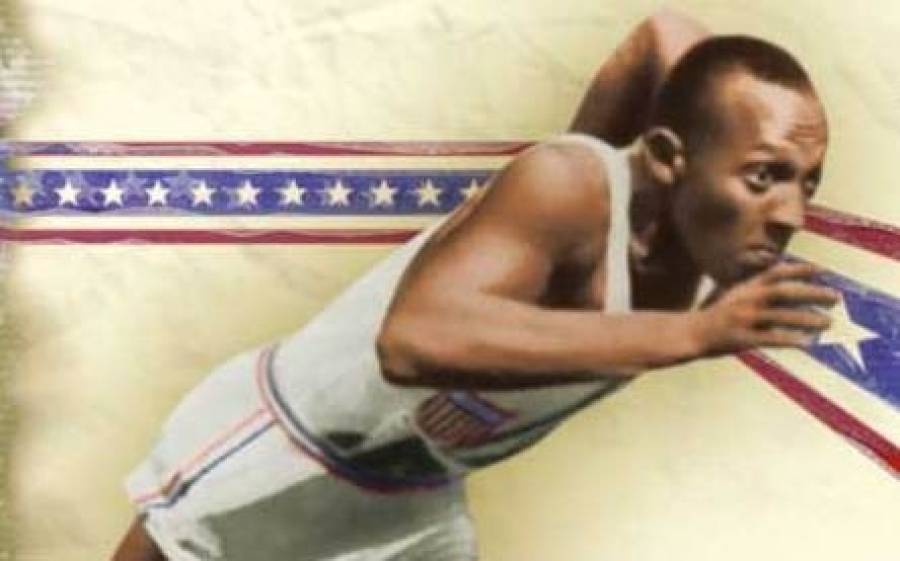
Summer 1936.
Summer Olympic Games in Berlin.The first relay of the Olympic torch.The games were televised for the first time, on big screens across Berlin.Basketball was accepted as an Olympic sport for the first time. In the final – playing on a dirty court in the rain, making dribbling impossible – the United States team defeats Canada 19-8.A twelve-year-old Danish girl, Inge Sorensen, wins a bronze medal in the 200m breaststroke, becoming the youngest medal winner ever in an individual event.In what is perhaps the most famous incident in Olympic history, Jesse Owens wins four gold medals, after which German claims of Aryan superiority appear.
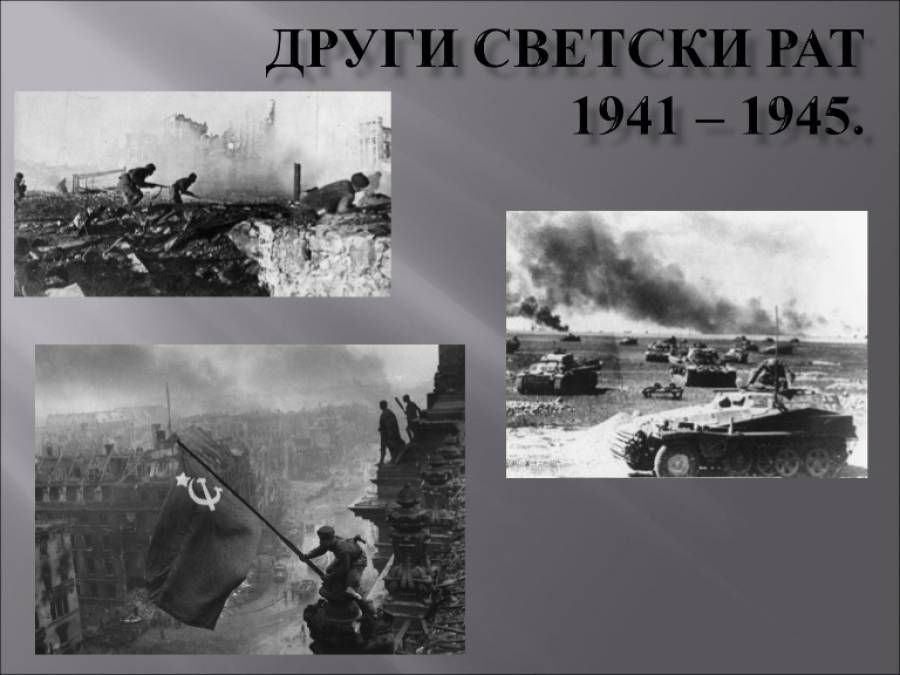
1940. i 1944.
The games were canceled due to World War II.
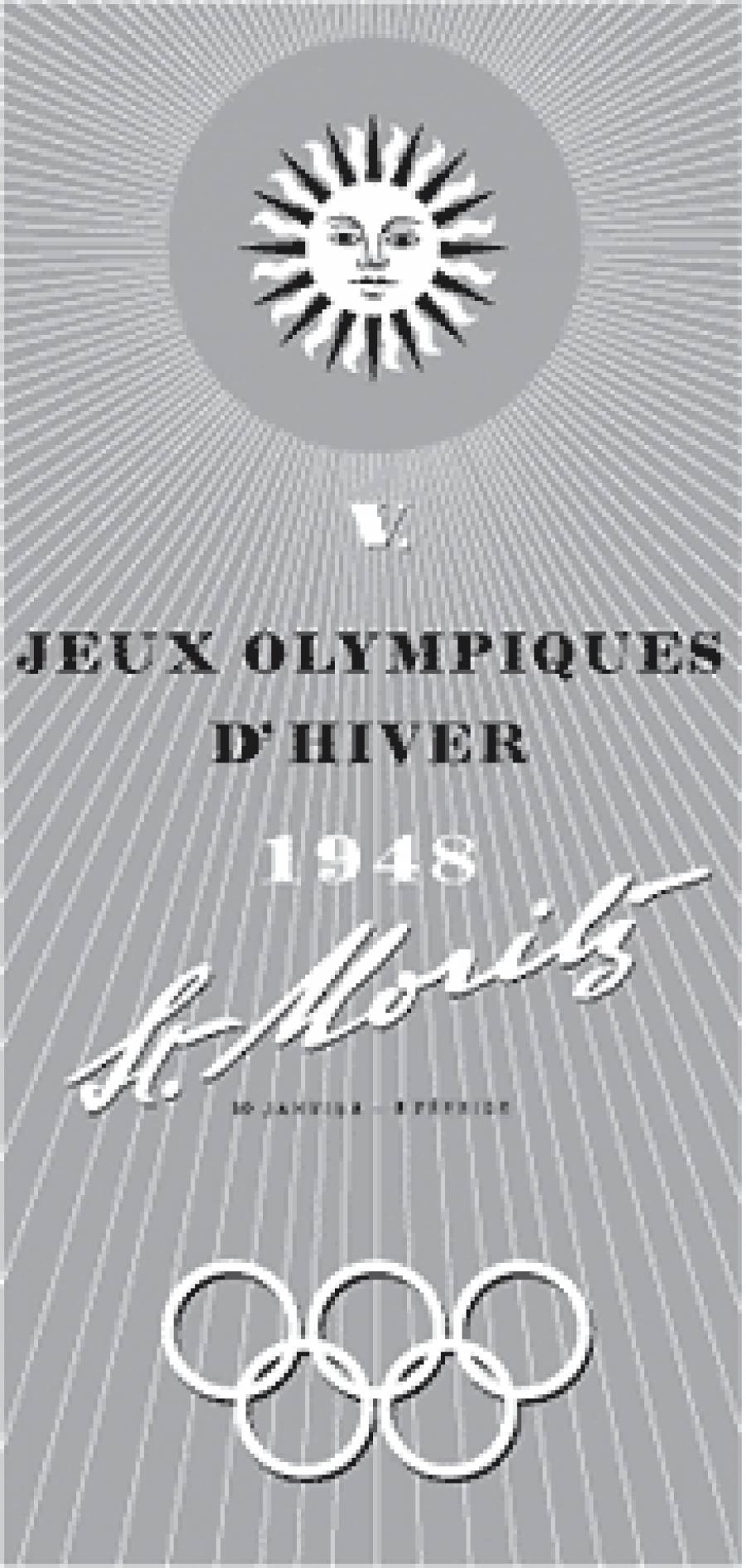
Winter 1948.
Winter Olympic Games in St. Moritz.Held for the second time in St. Moritz, Switzerland, since the city was untouched by the war.Both men and women have three disciplines in Alpine skiing.The US Olympic Committee sends a hockey team, as does the US Hockey Association; The IOC bans both from medal consideration.Skeleton - the head-first version of the sled - appeared for the first time since the St. Moritz Games 20 years earlier. American John Heaton wins silver, as he did last time.
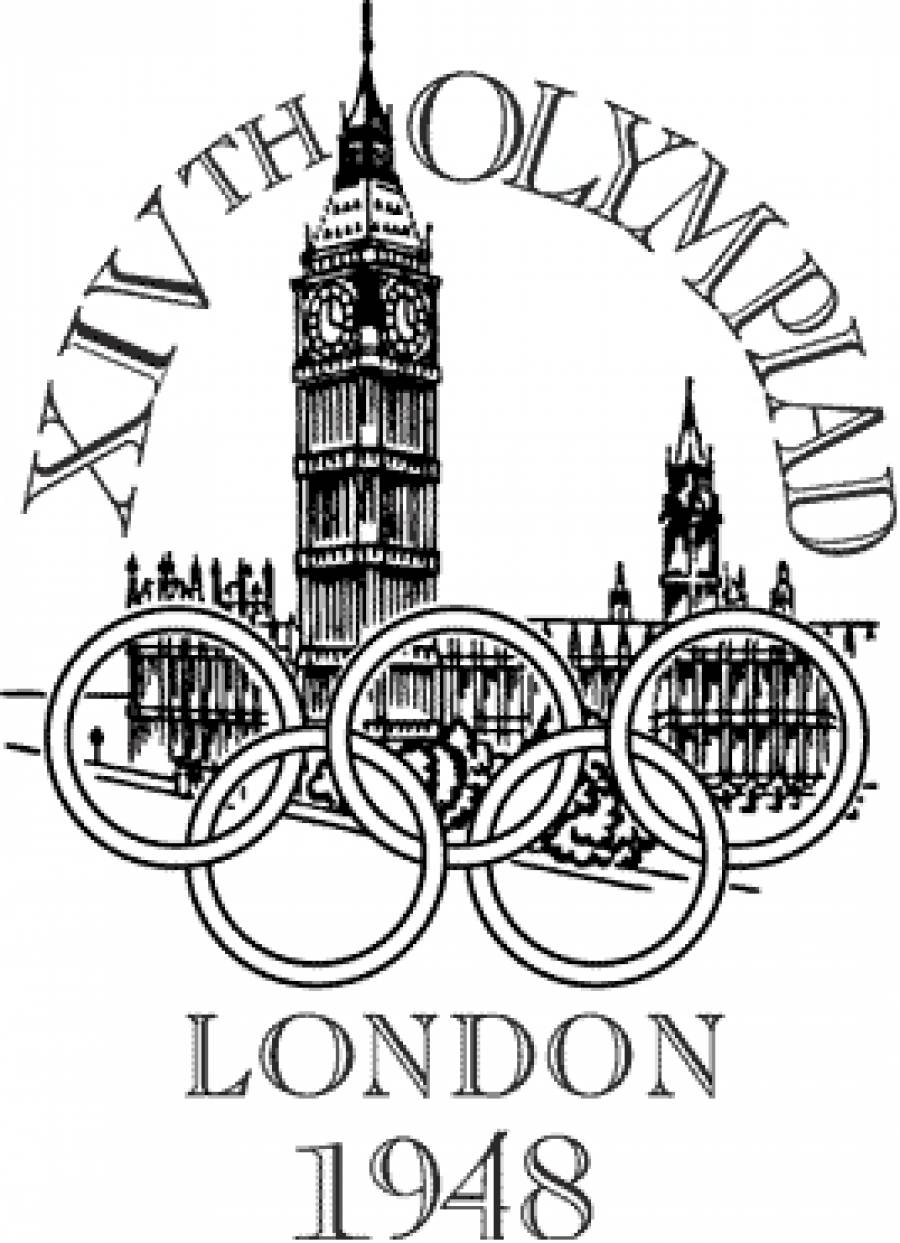
Summer 1948.
Summer Olympic Games in London.The first Games that were shown on home televisions.Germany and Japan were not invited, but a record number of 59 countries participated.Dutch athlete Fanny Blankers-Cohen wins four gold medals, the same as Jessie Owens twelve years earlier. She holds the world record in the high jump and long jump, but does not compete in those events, as the rules state that women cannot compete in more than three individual sports.Hungarian, right-handed Karoli Takcaz, a member of the national shooting team, whose hand was blown off by a shell in 1938, taught himself to shoot with his left hand, and this year he won gold in the pistol-rapid fire discipline.
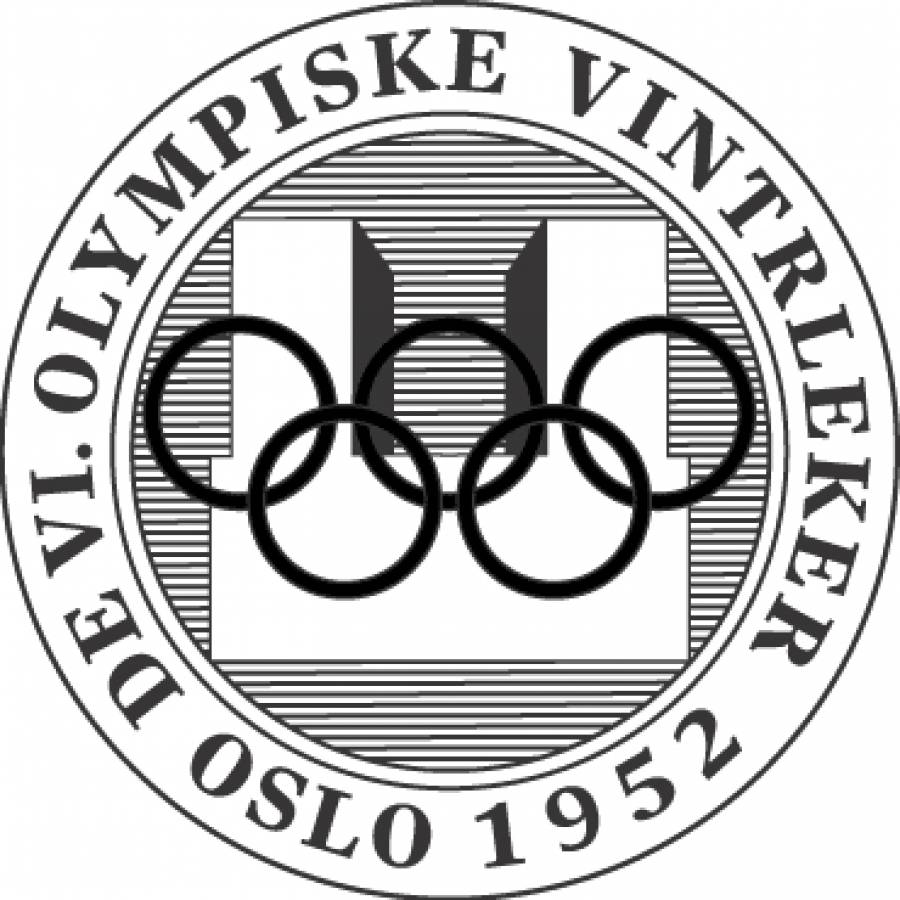
Winter 1952.
Winter Olympic Games in Oslo.The Olympic torch was lit in the fireplace of ski pioneer Sondra Norheim, and carried by 94 skiers to the Oslo Games.Twenty-eight-year-old Norwegian truck driver Hjalmar Andersen wins three gold medals in speed skating, setting an Olympic record in two disciplines.Canada's ice hockey team wins seventh gold medal in eighth Olympic Games; it would be fifty years before they won another.
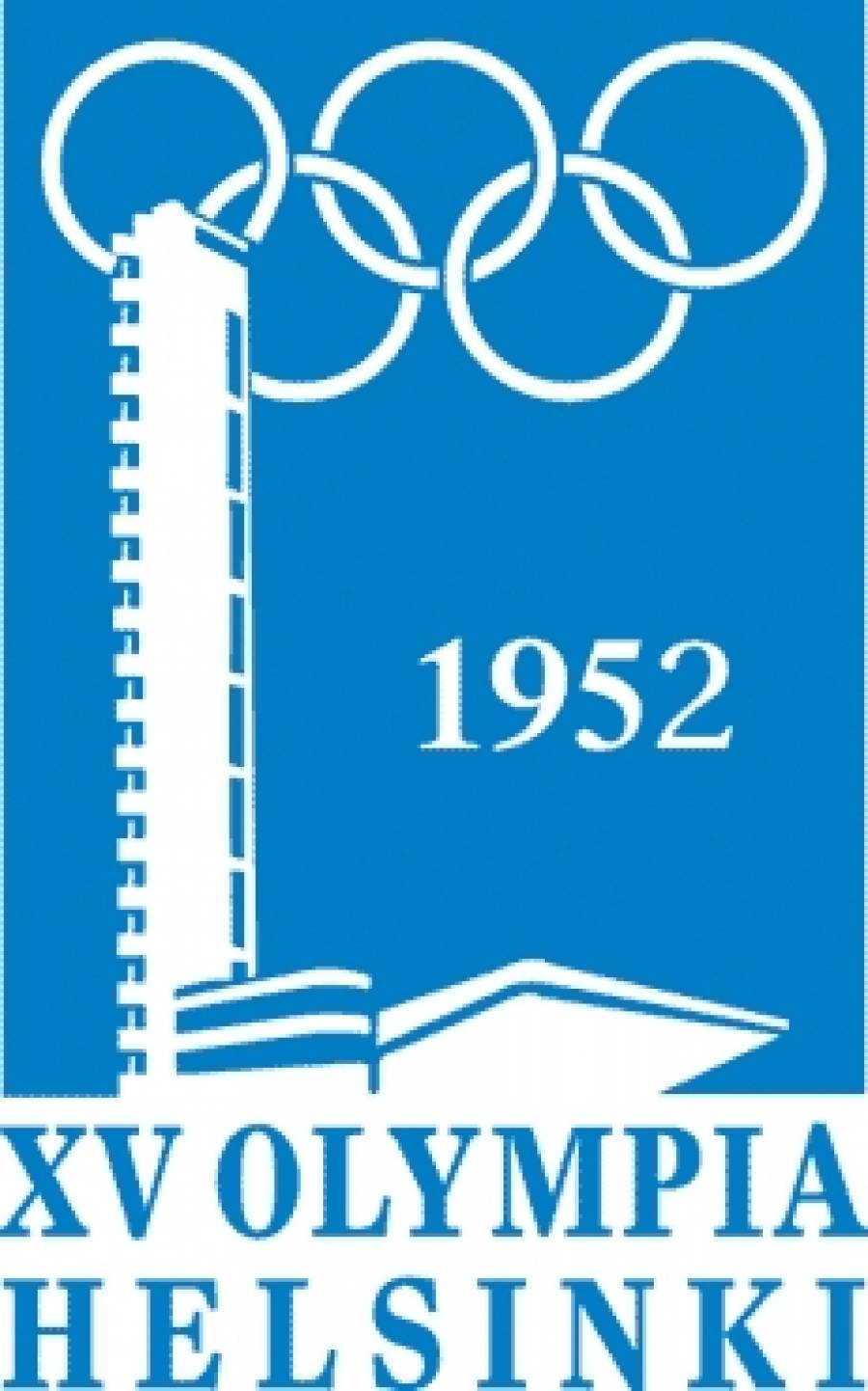
Summer 1952.
Summer Olympic Games in Helsinki.Russian athletes are participating for the first time in forty years.Maria Gorokhovskaya of the USSR – unhindered by the restrictions placed on women at earlier Games – sets the record for most medals won by a woman in a single Olympics, with two golds and five silvers.The USA beats the USSR in the overall medal count, 76-71.Czechoslovak Emil Zatopek sets Olympic records in the 5,000m, 10,000m and marathon races, a discipline in which he has not run before.
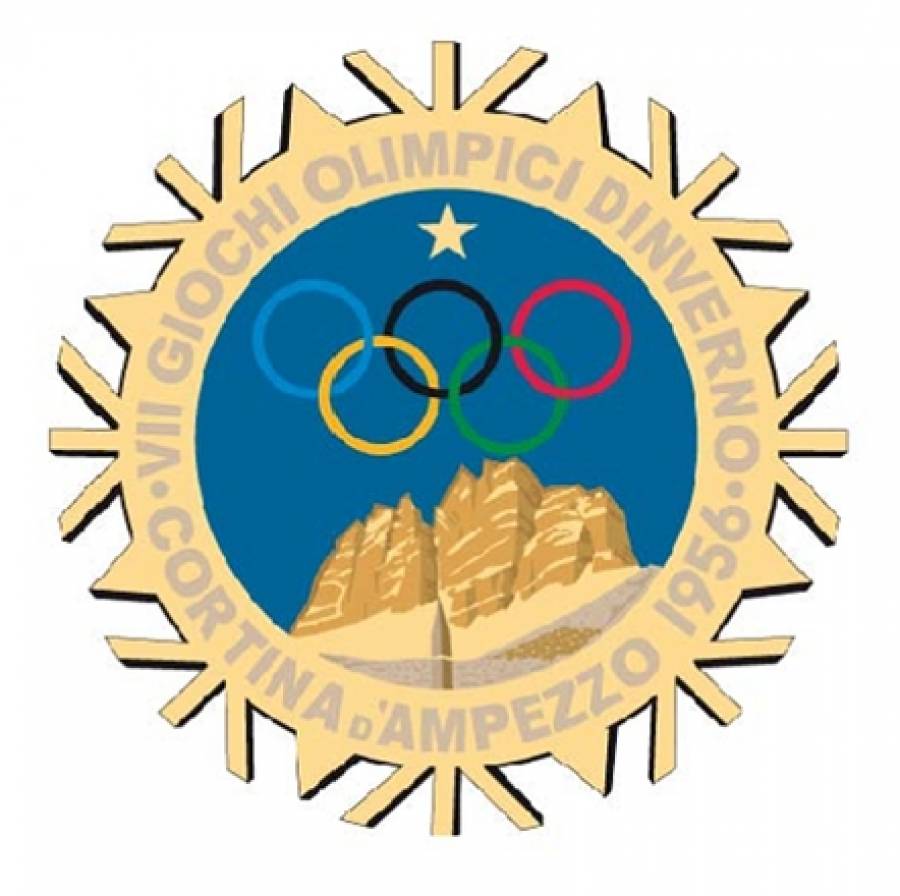
Winter 1956.
Winter Olympics in Cortina d'Ampezzo.The Soviets break Canada's ice hockey gold medal monopoly, and win more medals than anyone else.Toni Seiler from Austria becomes the first skier to win all three alpine disciplines.USA wins five out of six medals in individual figure skating, while Austria's Ingrid Wendl wins bronze.
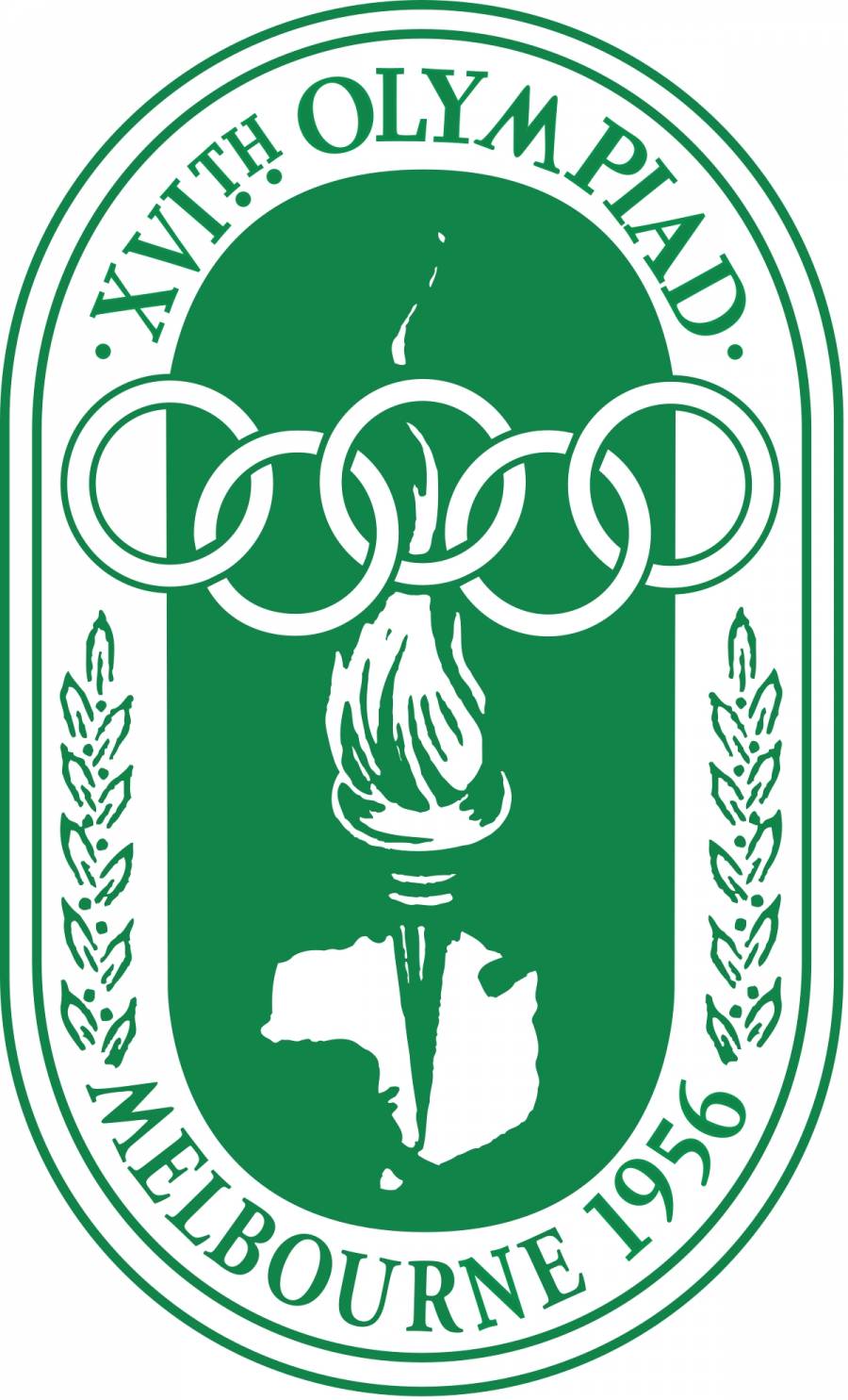
Summer 1956.
Ljetnje olimpijske igre u Melburnu.Kako karantin zakoni ne dozvoljavaju ulazak stranih konja, jahački događaji su održani u Stokholmu u junu. Ostali sportovi započeti su u kasnom novembru, kada počinje ljeto na južnoj hemisferi.Lihtenštajn, Holandija, Španija i Švedska bojkotuju Igre iz protesta zbog sovjetske invazije na Mađarsku. Egipat, Lebanon i Irak su učinile isto kao rezultat Suecke krize. Narodna republika Kina odbija da učestvuje zbog učešća Republike Kine (Tajvana).Istočna i Zapadna Njemačka su predstavljene zajedničkim timom.Sovjeti dominiraju terenom i osvajaju 98 medalja, dok Amerikanci uzimaju 74.Na ceremoniji zatvaranja, po prvi put, sportisti svih nacija ulaze na teren zajedno, a ne odvojeno po nacijama.
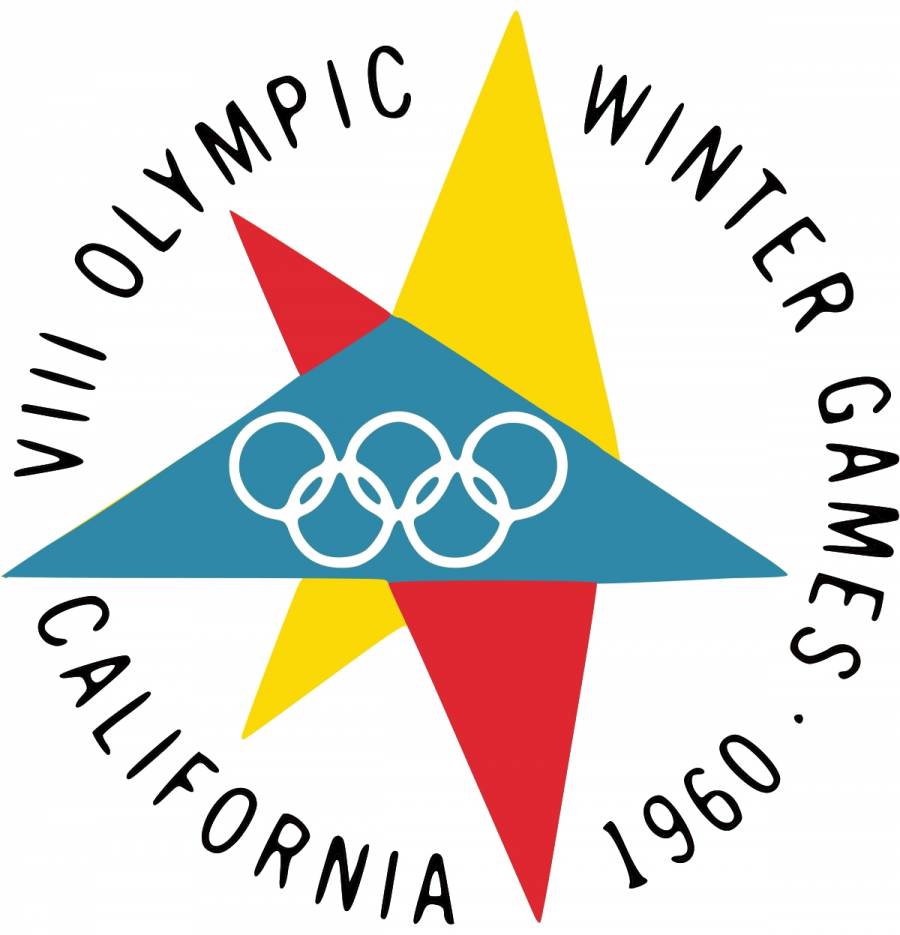
Winter 1960.
Winter Olympics in Squaw Valley.The only Winter Olympics that did not include a bobsled competition, because the Organizing Committee refused to build an expensive bobsleigh track for only nine nations to use.Walt Disney is in charge of the pageantry, including the opening and closing ceremonies.Swede Klas Lestander wins the first biathlon, a combination of Nordic skiing and shooting.The USA ice hockey team wins its first gold, upsetting teams from Canada and the USSR.The Soviets finish with twice as many medals as their nearest rival, the Americans.
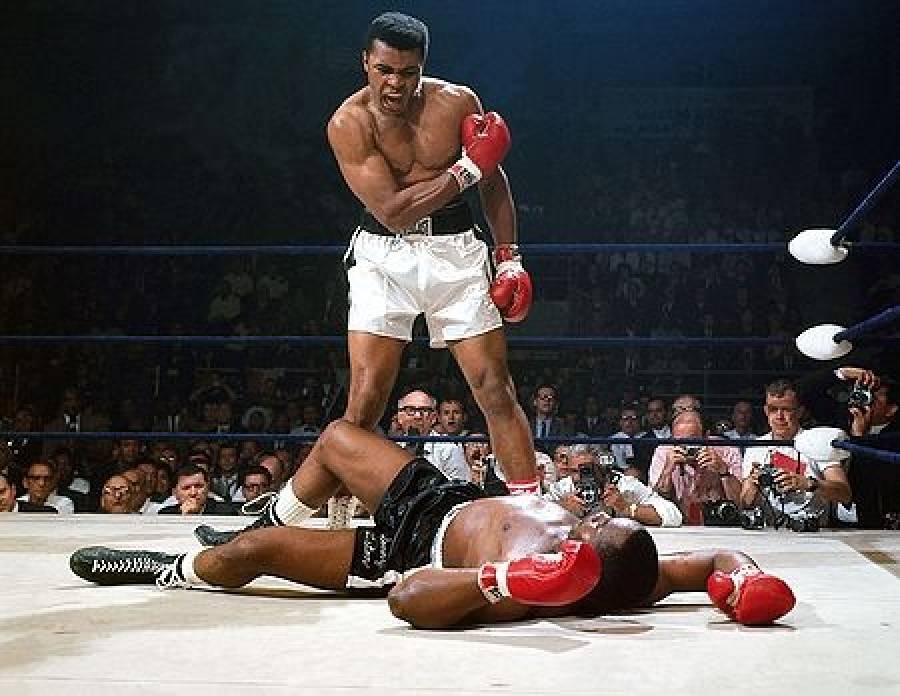
Summer 1960.
Summer Olympic Games in Rome.The first Summer Olympic Games that were televised all over the world.A record number of 5,348 athletes from 83 countries are competing.Eighteen-year-old boxer, Cassius Clay - later known as Muhammad Ali - is the light-heavyweight champion.Abebe Bikila, from Ethiopia, running a marathon barefoot, becomes the first black African to take home a gold medal.American Wilma Rudolph wins three gold medals in running.After taking amphetamines, Danish cyclist Knut Jensen collapses during the race, suffering a fatal head injury.The Soviets still lead with 103 medals (43 gold), while the Americans take 71 (34 gold).
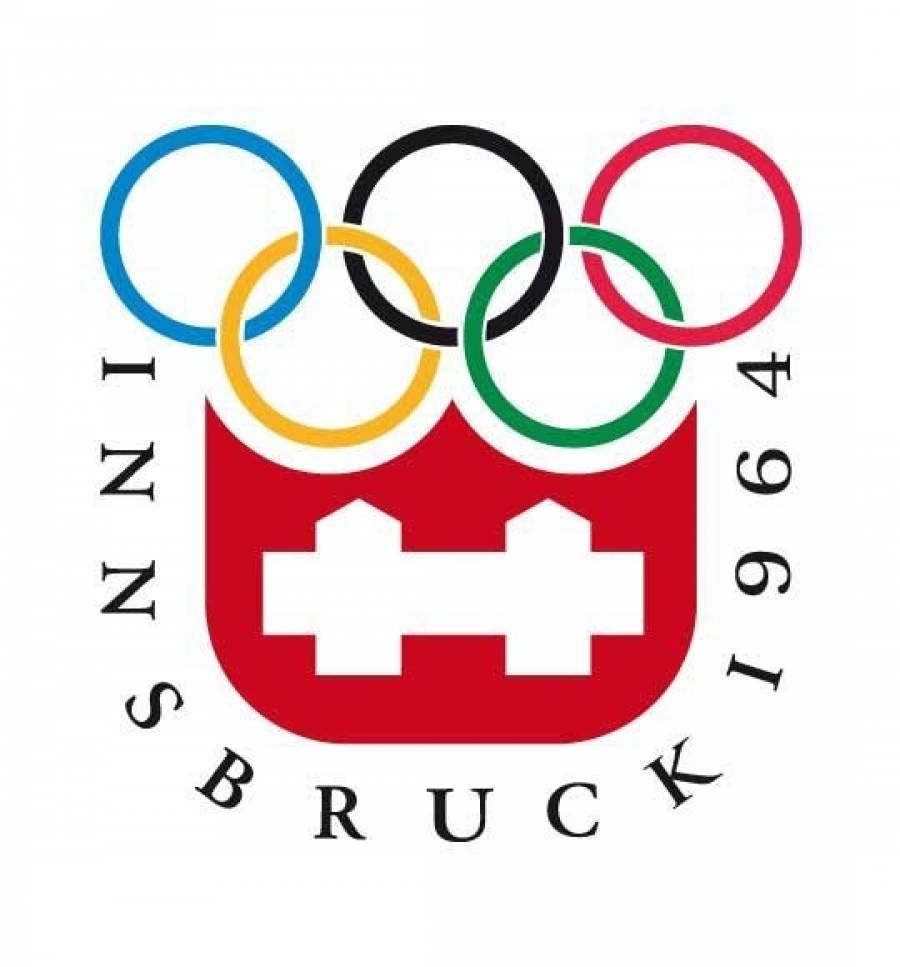
Winter 1964.
Winter Olympics in Innsbruck.Unsatisfactory weather conditions required the Austrian army to bring ice and snow from the higher parts of the mountain.Because of its apartheid policy, South Africa was banned from the Olympics; and would not be called back until 1992.Luge was added for the first time, but a dark cloud descended over the sport after a Brit died in training a week before the competition.The USSR leads again with 25 medals; six medals puts the USA in eighth place.
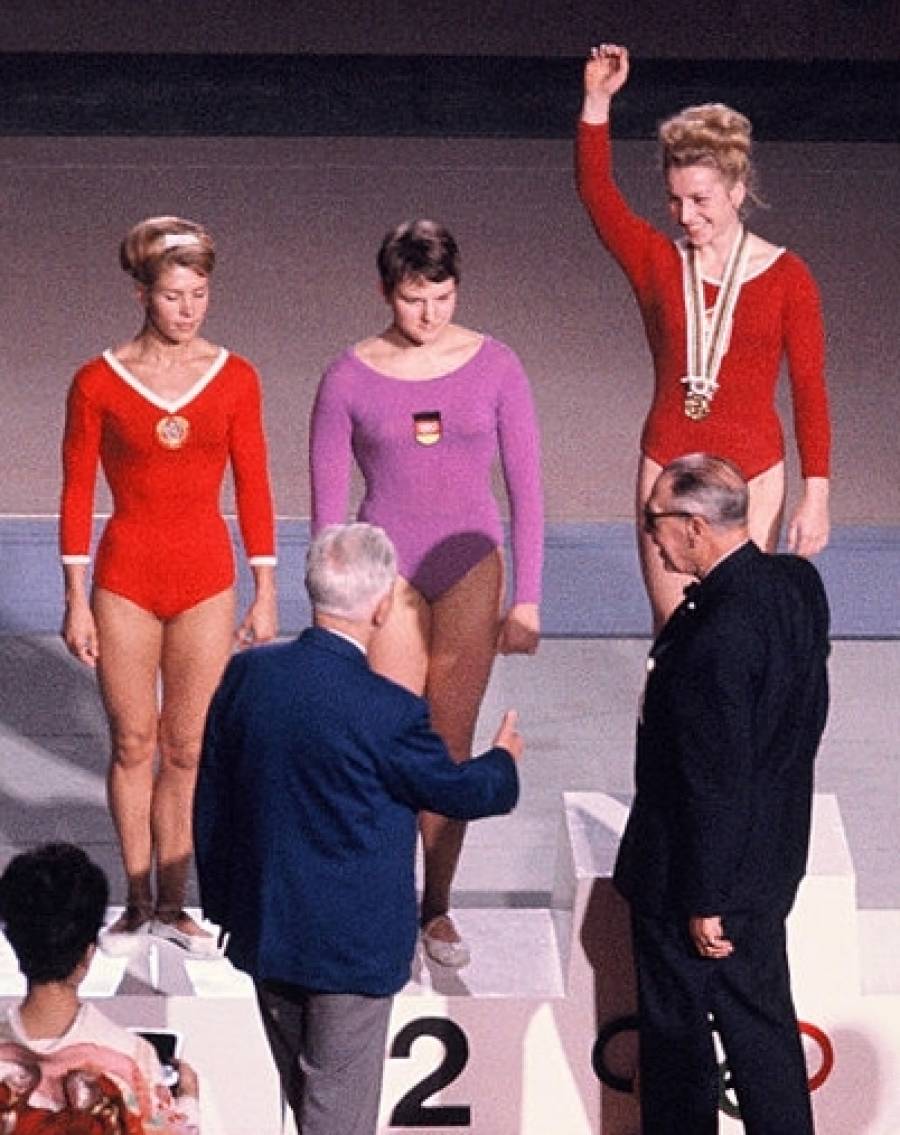
Summer 1964.
Summer Olympic Games in Tokyo.Japan is spending $3 billion to rebuild Tokyo for the Olympics, reviving a city that was devastated by earthquakes and bombings during World War II. Twenty-five Olympic records were broken during these Games, and the world image of Japan is improving significantly.Abebe Bikila wins the marathon again, less than six weeks after appendectomy.Soviet gymnast Larisa Latynina wins six medals three times in a row; she remains the Olympic athlete with the most medals (18) and with the most medals in individual events (14).American Al Oerter wins the discus throw for the third time in a row, despite an injury to the cervical spine and torn rib cartilage.The USA and the USSR remain roughly even, so the Soviets win more medals overall, while the Americans win more gold medals.
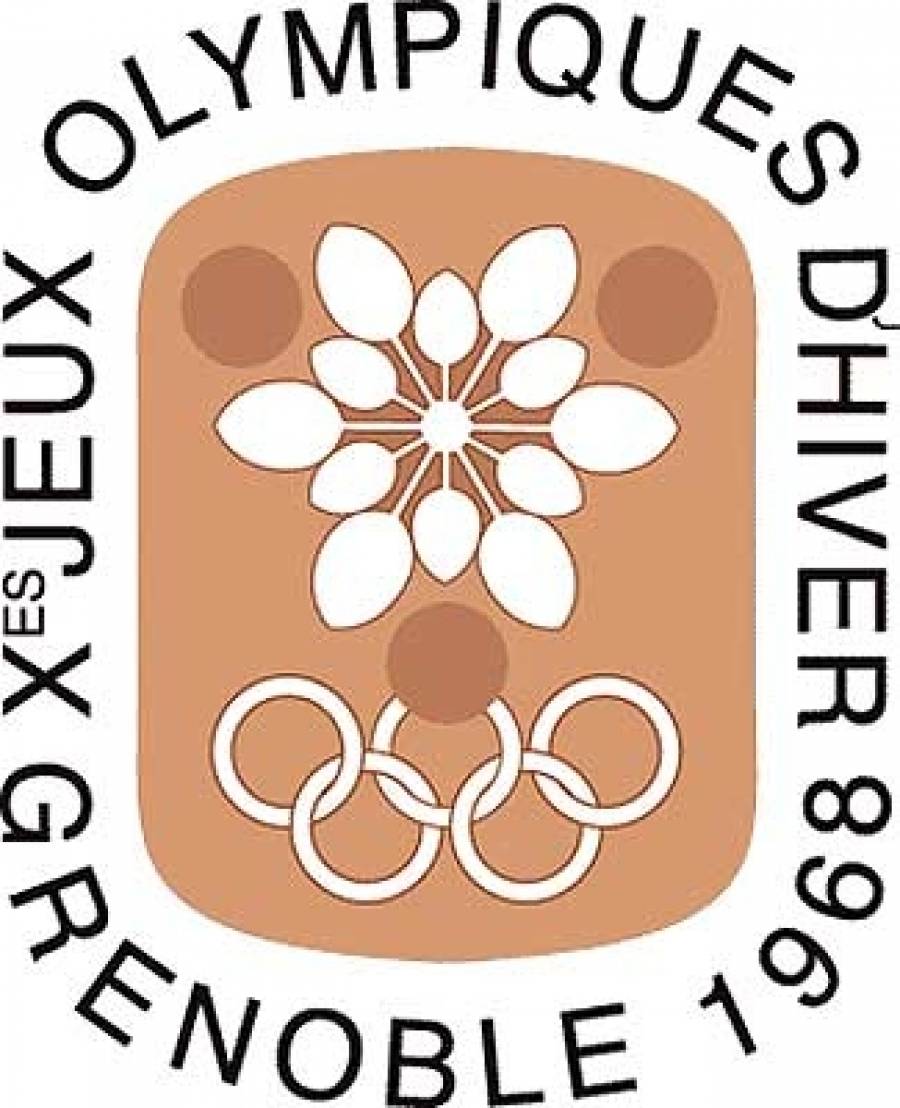
Winter 1968.
Winter Olympic Games in Grenoble.East and West Germany compete in separate teams for the first time.Gender test and drug tests are implemented.Norway wins the most medals (14) for the first time, beating the Soviets by one.Peggy Fleming wins America's only gold medal, in figure skating.Frenchman Jean-Claude Killy won all three Alpine disciplines, after the controversy surrounding the disqualification of Austrian Karl Schranz in the slalom.Soviets win ice hockey gold again.Women still only have 12 disciplines, compared to 21 for men. (There are also two common double disciplines, in figure skating and luge.)
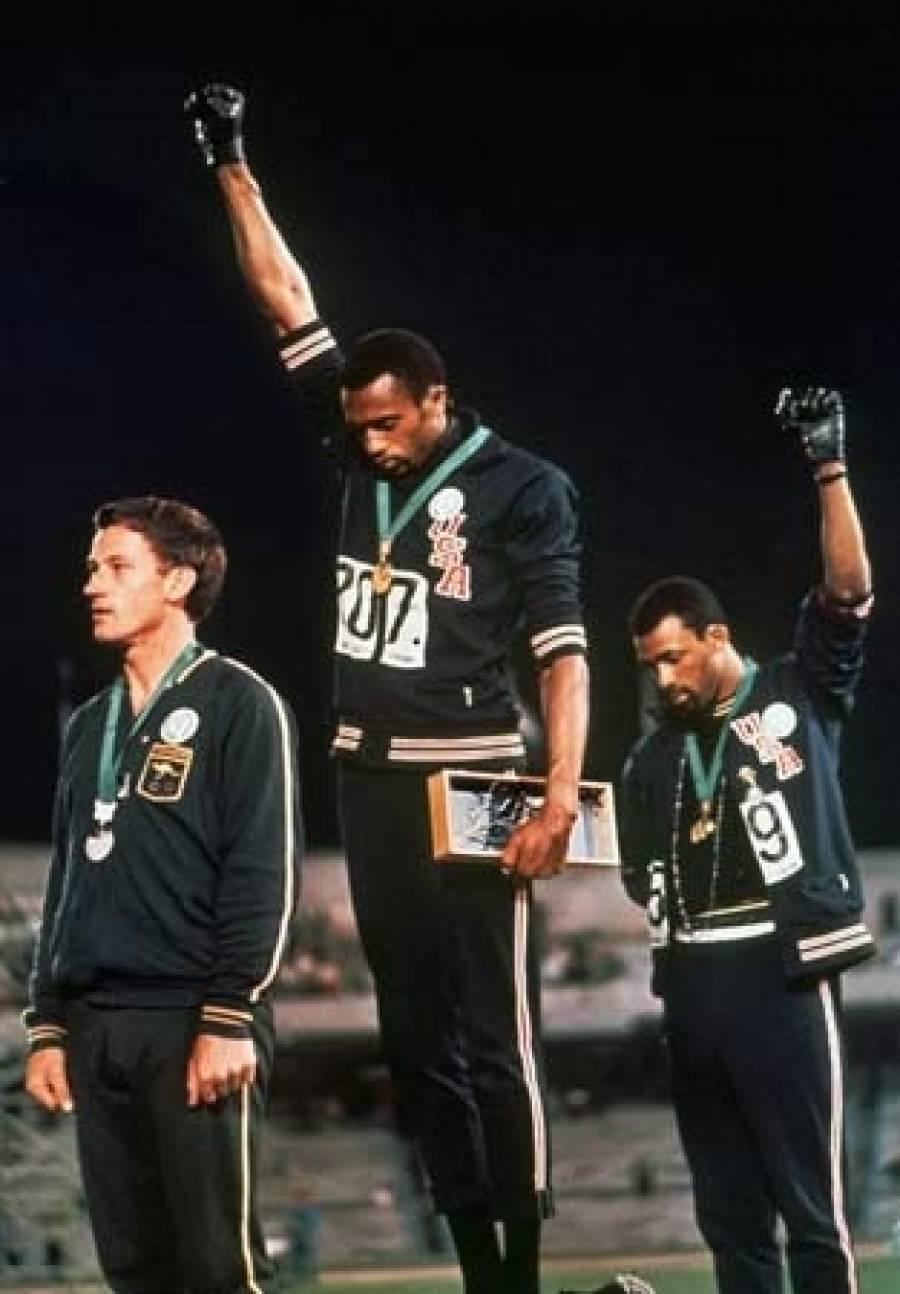
Summer 1968.
Summer Olympics in Mexico City.These Games were controversially held at the highest altitude ever: 2,240m. Thin air is bad for athletes' endurance during competition, but it leads to records in sprints, relays and jumping events.Bob Beamon sets the world record in the long jump with 8.90m.Dick Fosebury revolutionizes the high jump with his back-first "Fosebury Turn" technique, taking home the gold.Al Oerter wins the discus for the fourth time.On the podium after the 200m race, Americans Tommy Smith and John Carlos raise their fists in salute to Black Power; both were immediately suspended from the Games and deported from the country.Swedish panathlete Hans-Gruner Liljenvoll was the first to be disqualified for drug use, a positive test for excessive alcohol.Athletes compete in 122 men's disciplines, 39 women's disciplines and 11 joint disciplines; USA wins more medals 107 (45 gold) than USSR 91 (29 gold).
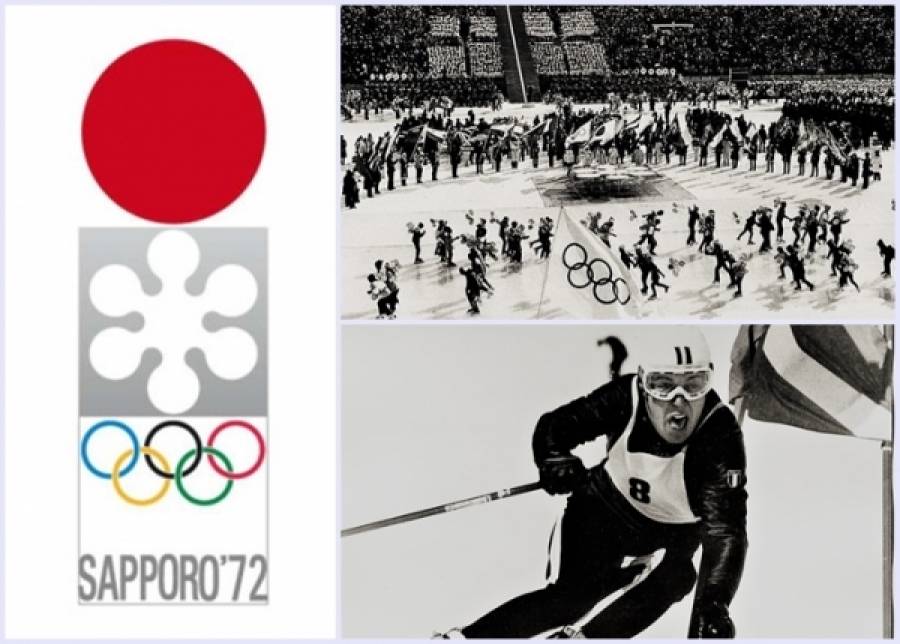
Winter 1972.
Winter Olympic Games in Sapporo.Soon-to-be-retired IOC president Avery Brandage is threatening to disqualify 40 alpine skiers for taking money from ski equipment manufacturers. In the end, only one athlete was banned from performing, the Austrian Carl Srantz.Additional controversy was caused by the knowledge that the USA, the USSR and others routinely circumvented the IOC's amateur regulation for decades, without consequences. The Soviets paid their athletes for jobs they never did, while the Americans gave sports scholarships to thousands of athletes.Canada boycotts the Games in protest of Eastern European "state amateurs."Norwegian Magne Mirmo becomes the last athlete to win cross-country skiing using wooden skis.The Soviet Union maintains its position on the podium of the Winter Olympics.
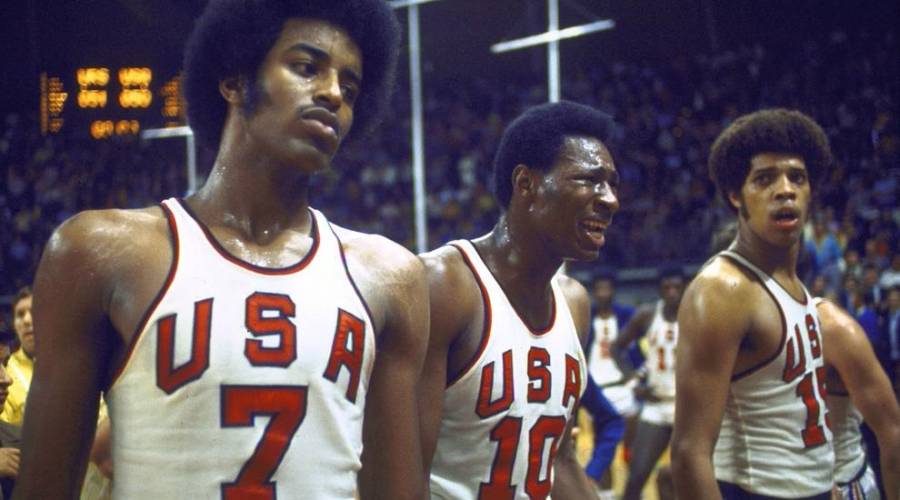
Summer 1972.
Summer Olympic Games in Munich.The judges say the Olympic Oath for the first time.Mark Spitz sets seven world records and wins seven gold medals in swimming disciplines.The Games were overshadowed by members of the terrorist group Black September who kidnapped eleven Israeli athletes from the Olympic Village, killing two while holding the remaining nine hostage.After a day of mourning, the Games continue, although Spitz, a Jew, leaves the country for his own safety.The American basketball team loses a game against the Soviet Union for the first time, but refuses to accept the silver medal, claiming that the clock was improperly restarted in the final moments.The Soviets lead in medals, 99 (50 gold) versus 94 (33 gold).
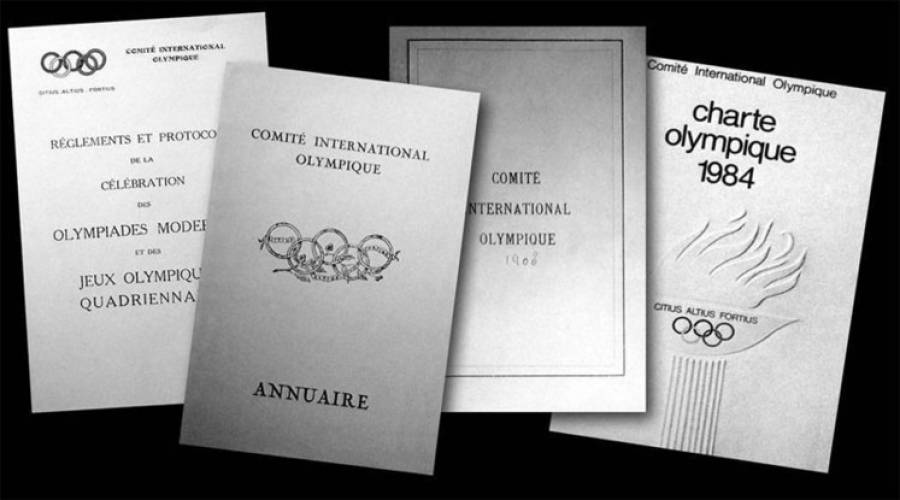
1974.
The word "amaterism" has been removed from the Olympic Charter. This has no immediate effect on Olympic policy, but paves the way for future changes.
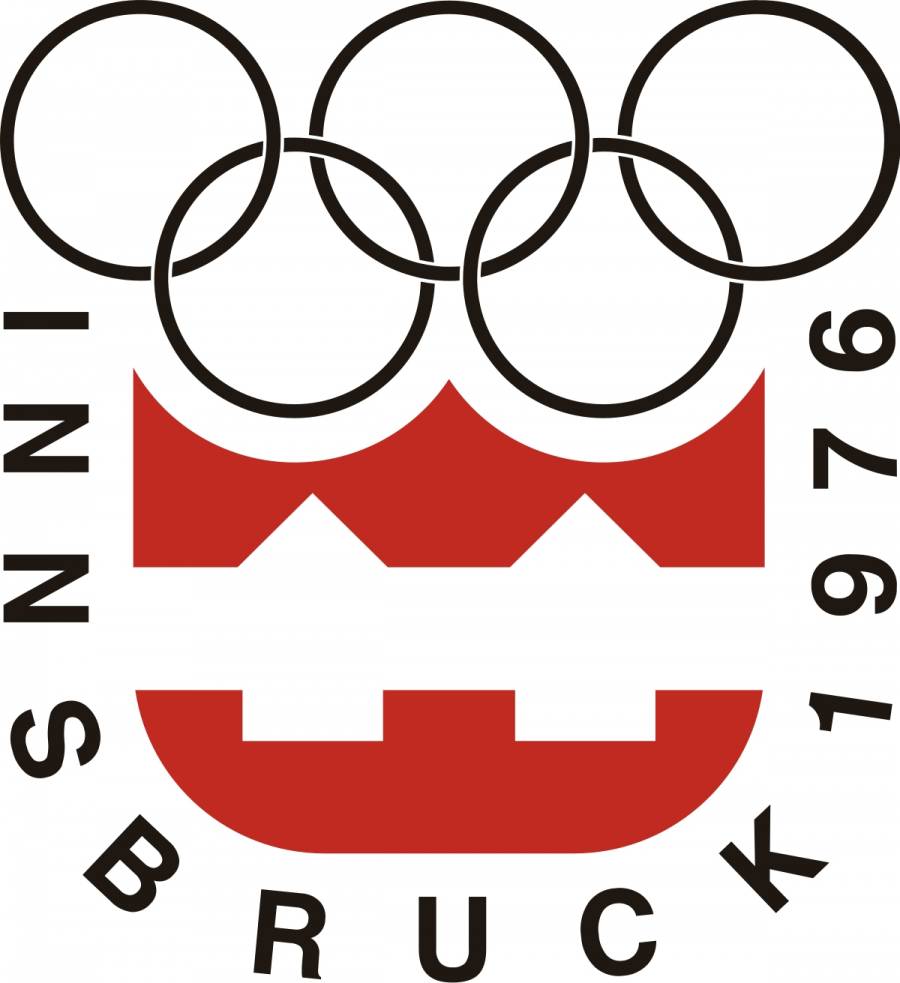
Winter 1976.
Winter Olympics in Innsbruck.It was originally planned to be held in Denver, but Colorado residents voted against spending money on the Games.Figure skating made its debut.Austrian Franz Klammer wins gold in the downhill discipline.The Russian hockey team wins its fourth gold in a row.Dorothy Hamill and Briton John Carey win gold in figure skating.The USSR and East Germany are ranked first and second, while the USA moves to third place.
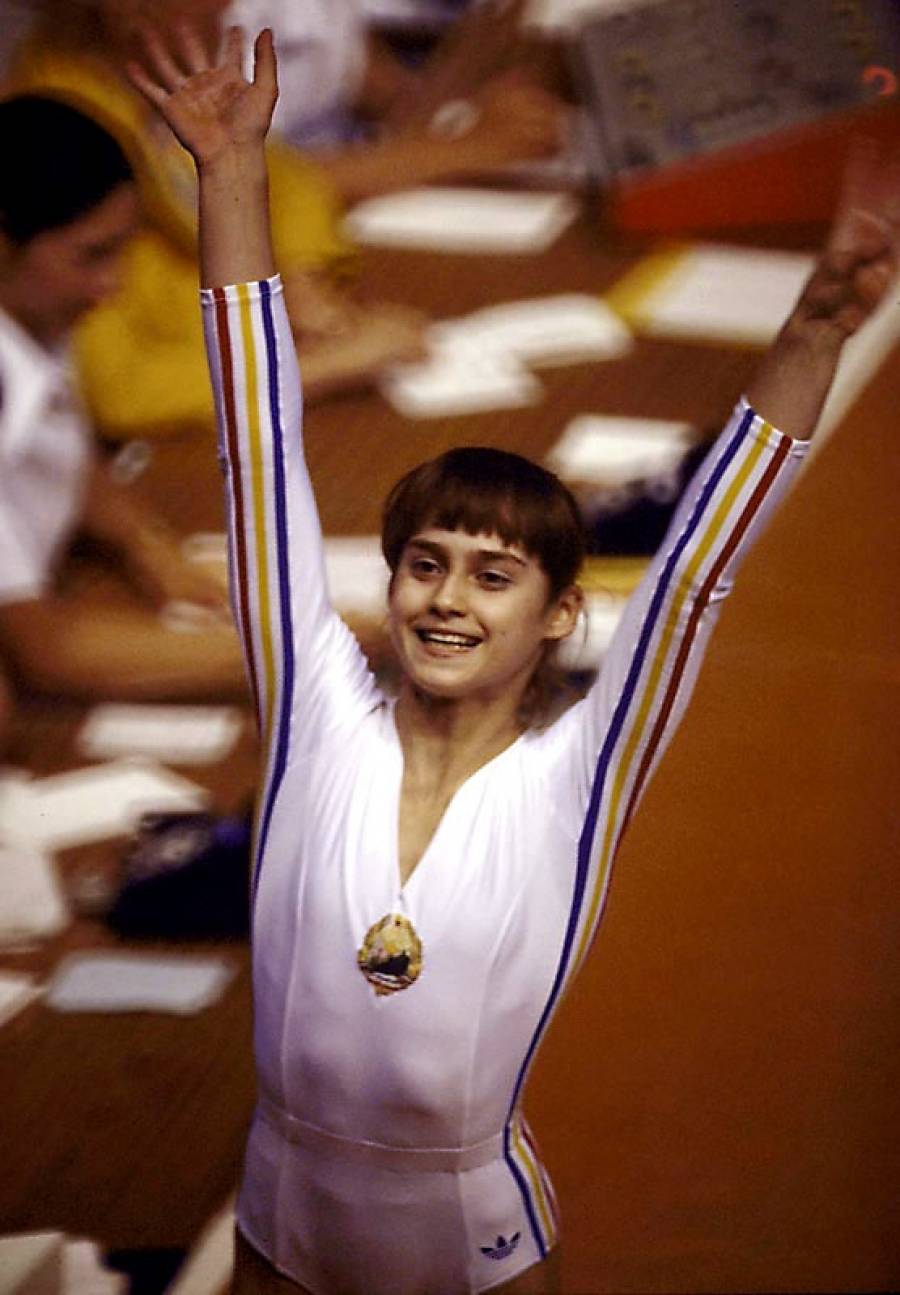
Summer 1976.
Summer Olympics in MontrealThe cost of the Montreal Games was estimated at $310 million, but labor problems, financial problems with management, an extra extravagant stadium and other costs - as well as increased security that was clearly needed after the events in Munich - pushed that figure to $1.5 billion.Canada bans the Republic of China (Taiwan) team from entering the country, but eventually allows them to enter if they agree not to perform as the "Republic of China", however they find this unacceptable and withdraw.Dozens of other nations, mostly African, are boycotting the Games in protest at the inclusion of New Zealand, whose rugby team is touring racially divided South Africa.Fourteen-year-old Romanian gymnast Nadja Comaneci hits seven perfect tens on her way to three gold medals, along with silver and bronze. No one has won a single top ten before.Five American boxers win gold medals, including three future world boxing champions: Ray Leonard, Michael Spinks and Leon Spinks.The Soviets lead in the number of medals, followed by the USA and East Germany.
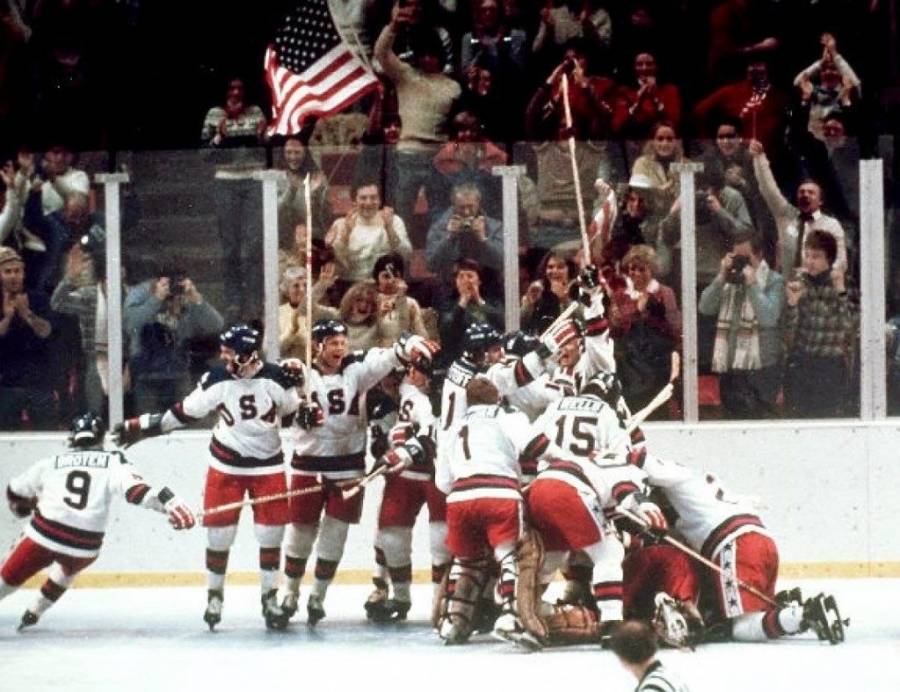
Winter 1980.
Winter Olympics in Lake Placid.The first Games where artificial snow was used.American Eric Hayden wins all five disciplines in speed skating, and this is the first time that something like this has been done.The USA wins just one more gold medal, and the USSR and East Germany once again dominate the field...but the Americans don't worry. That sixth gold medal, in ice hockey, is summed up in six words by Al Mikaels:"Do you believe in miracles? Yes!"
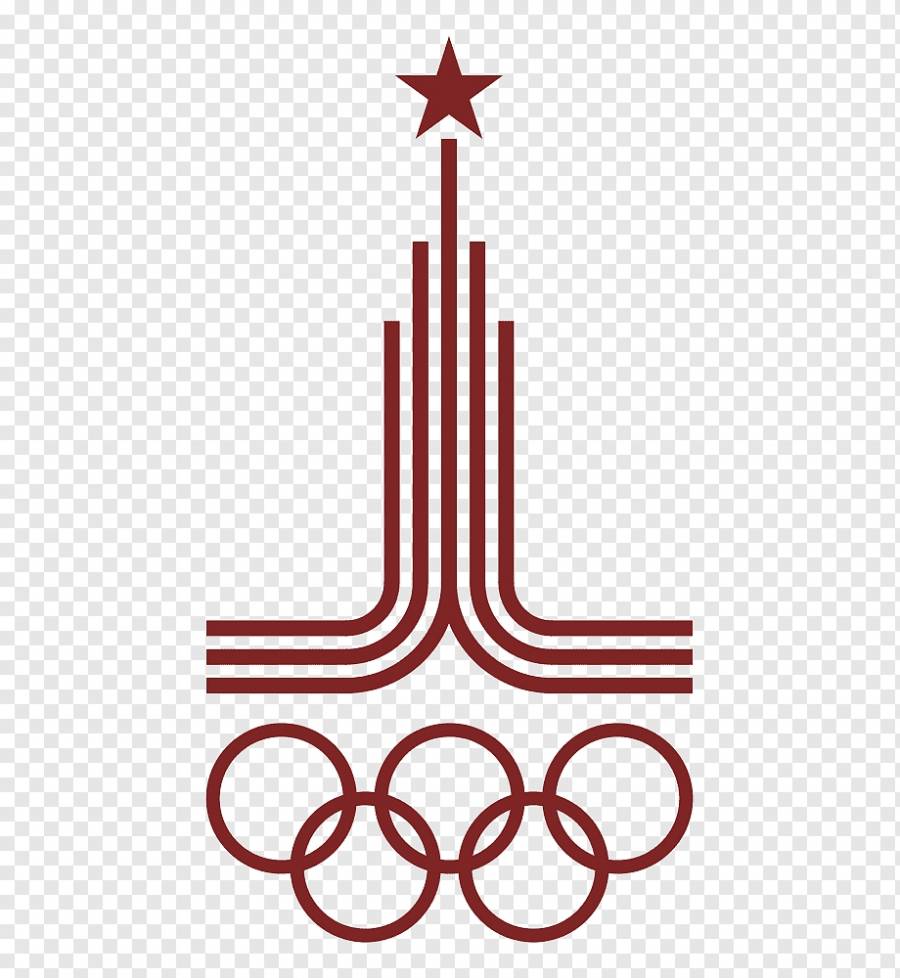
Summer 1980.
The first Games that were organized in a communist country.Due to the Soviet invasion of Afghanistan, US President Carter calls on the US Olympic Committee to boycott the Games. The Olympic Charter requires Committees to "resist all pressures of any kind, whether of a political, religious or economic nature," but theory and practice diverge; Americans stay at home and many other countries follow them.80 countries are participating in the Games, compared to 122 in Munich.Soviet athlete Alexander Dituatin wins a record eight medals in gymnastics.Super-heavyweight Teofilo Stevenson from Cuba becomes the first boxer to win in the same weight category three times in a row.Nadja Komaneči wins two more gold medals.
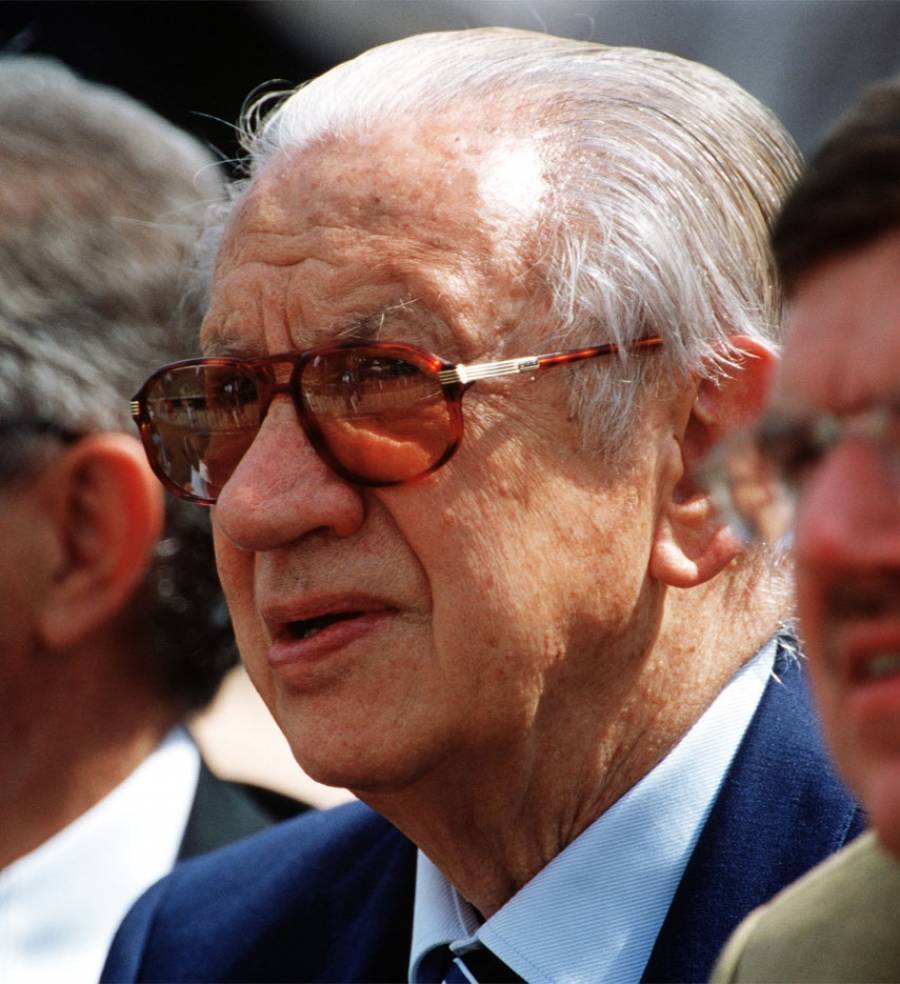
1981.
Not long after Juan Samarán became president of the IOC, international sports federations were given the right to determine which athletes would compete. Although athletes must adhere to the standards of the Olympic Charter, the door is open to professional athletes.Athletes are still prohibited from receiving money during the Games, either for participating or for winning.
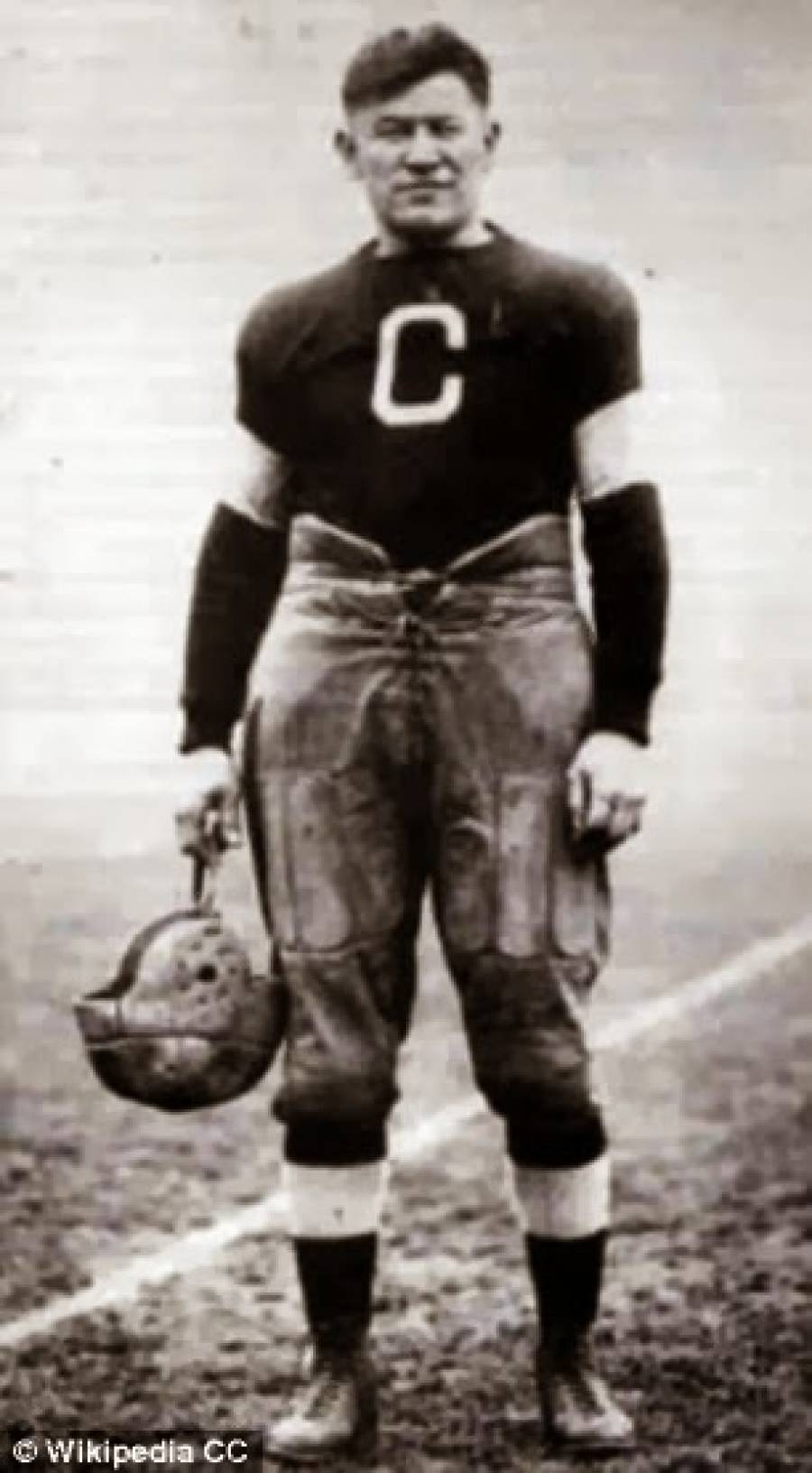
1982.
Jim Thorpe - whose amateur status was revoked in 1913 - was officially pardoned by the IOC, 29 years after his death. Replicas of his 1912 medals were presented to his family in early 1983.
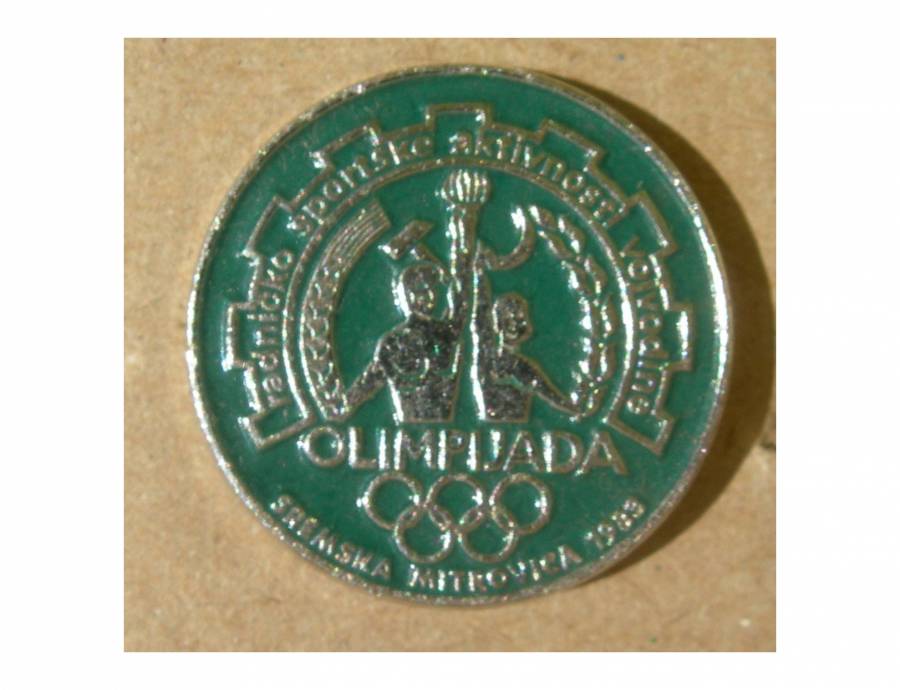
1983.
The IOC has voted to allow the Games to be open to corporate sponsorship.
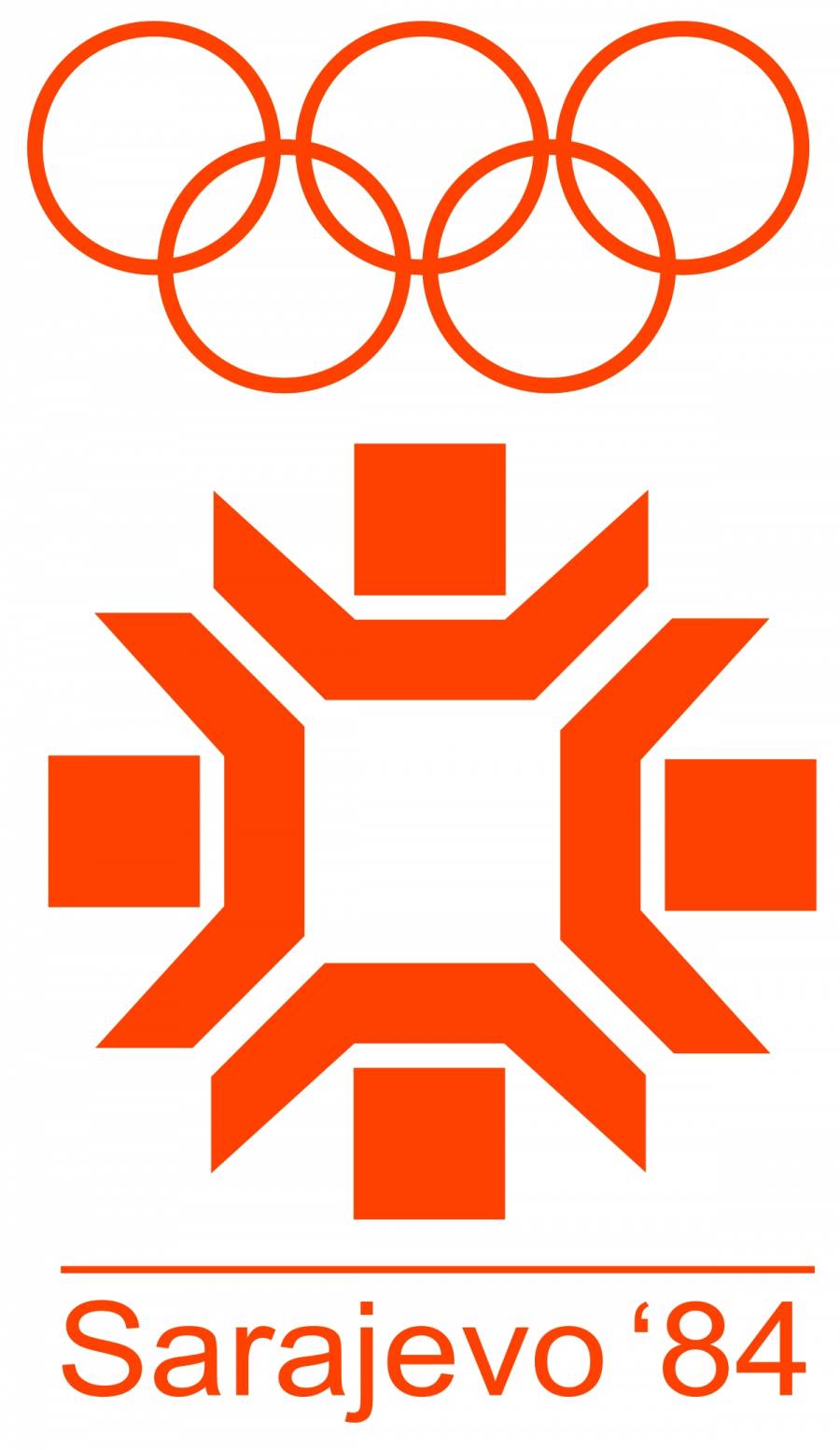
Winter 1984.
Winter Olympic Games in Sarajevo.They are being held for the first time in a socialist country.49 countries are participating, 12 more than the previous record at the Winter Games.As usual, the Soviets and East Germany finish on top; The USSR has more medals overall (25-24), but East Germany has more gold medals (9-6).The Soviets regain the lead in hockey, while the USA fails to qualify for a medal.Great Britain's Jane Trovile and Christopher Dean win gold in figure skating, receiving perfect scores for the artistic experience from all the judges.
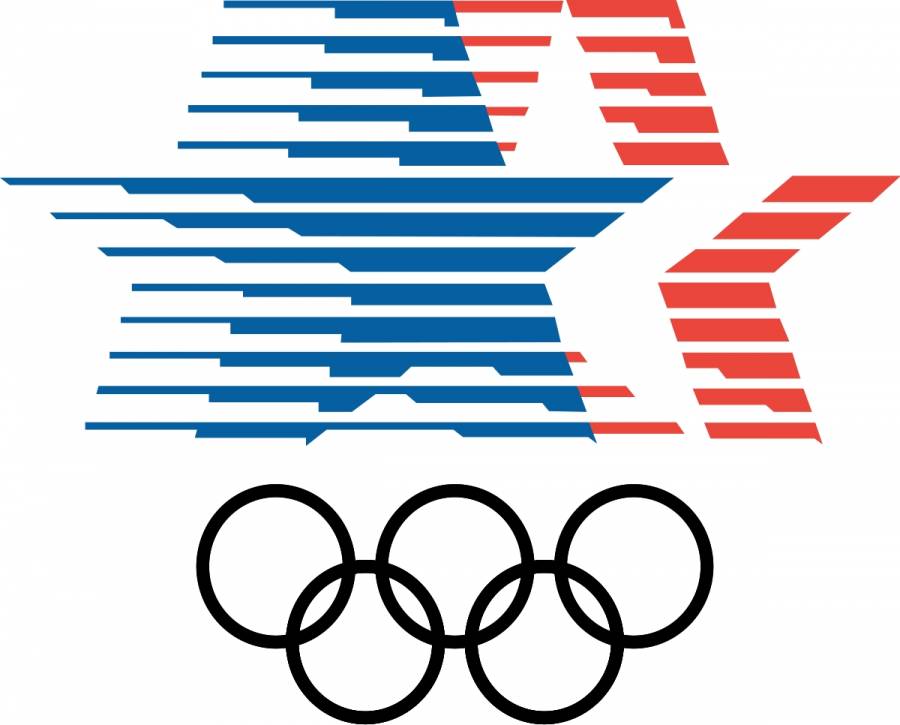
Summer 1984.
Summer Olympics in Los Angeles.In retaliation for the 1980 US boycott, the Soviet Union leads a 14-nation boycott, citing security concerns.The first Games, which were privately financed, became a commercial success. In addition to the lucrative broadcast deal, there are also 34 official sponsors, 64 companies with supply rights and 65 licenses. This is the second Games to exceed profit - $215 million - the first was in Los Angeles in 1932.Despite protests in Greece, the right to take part in the torch relay was sold for $3,000 per kilometer, although the $11 million raised is given to local youth groups.A record number of 140 countries participate, but without the Soviets and East Germany, the Americans win almost three times as many medals as their nearest rivals.American Carl Lewis repeats the feat of Jesse Owens in 1936, and wins gold medals in four of the same disciplines.Sixteen-year-old Mary Lou Retton earned her place on the Wheaties box by winning four medals in gymnastics - including gold in rhythmic gymnastics - just six weeks after knee surgery.As a compromise with FIFA, professional footballers are allowed to compete, but only if they have not participated in the World Cup.
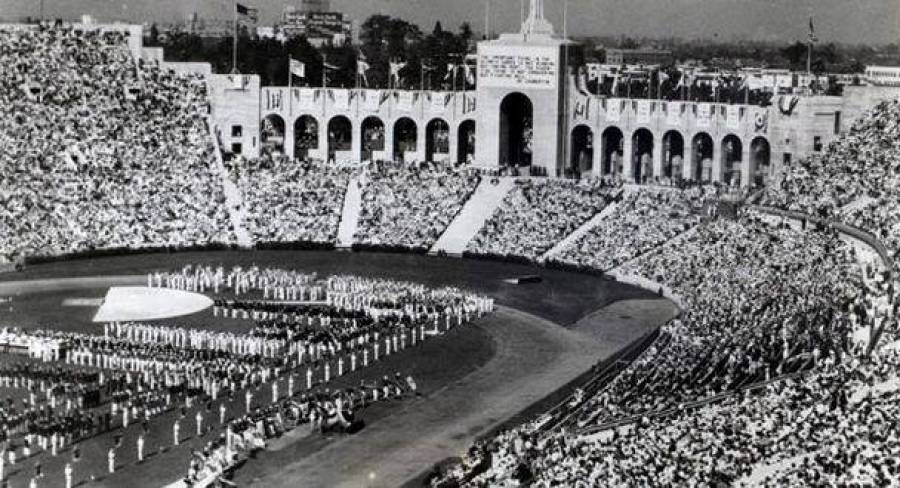
1986.
The IOC votes to change the schedule of the Olympic Games. Starting in 1984, instead of the same year, the Summer and Winter Olympic Games will be held two years apart.
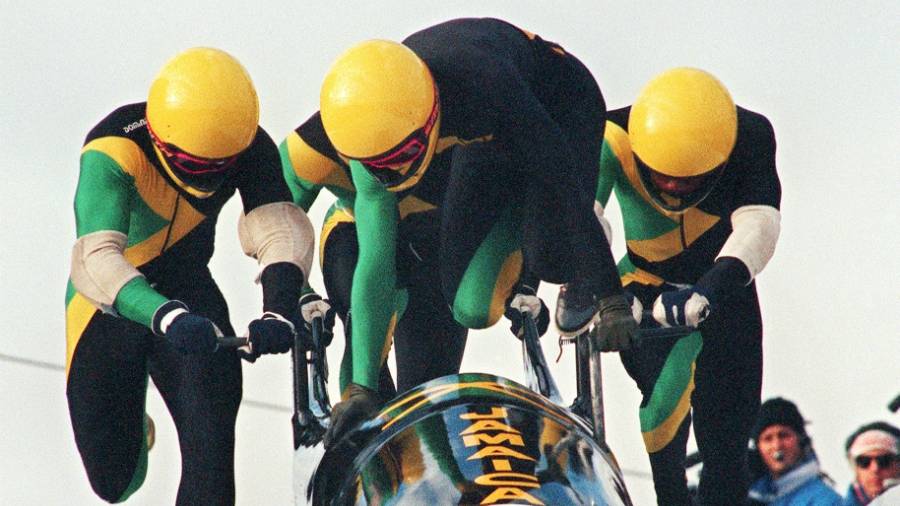
Winter 1988.
Winter Olympics in Calgary.The Winter Olympic Games are being held for 16 days for the first time.East Germany's Katarina Witt defends her title in figure skating, while American Brian Boitano wins gold in the men's category.Alberto "Bomba" Tomba from Italy wins men's slalom and giant slalom. In the women's category, Frannie Schneider wins the same.Loveable loser Eddie "The Eagle" Edwards finishes dead last in the 70m and 90m jumps, and is greeted by thousands of fans in London.Jamaica competes with its team in the bobsleigh event for the first time at the Calgary Games, and finishes last.
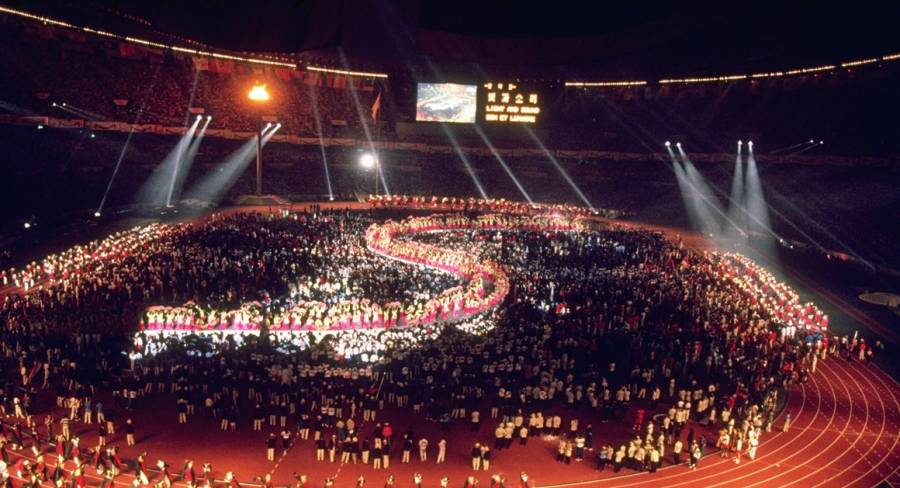
Summer 1988.
Summer Olympics in Seoul.North Korea refuses to participate, and Cuba and Ethiopia follow it out of solidarity, but a widespread boycott is not happening for the first time since 1972. 159 nations are sending 9,465 athletes, including 2,186 women.Canadian Ben Johnson defeats Carl Lewis in the 100 m race, with a world record time of 9.79. He subsequently tested positive for steroid use and his medal was taken away.Florence Griffith Joyner from America wins four medals, including three gold medals in running events, while her daughter-in-law Jackie Joyner-Kersey wins the long jump and heptathlon.Greg Louganis hits the springboard with his head but successfully defends his Olympic diving title a few days later.The last American basketball team without an NBA player finishes in third place.Tennis returns after a 64-year absence, and Steffi Graf wins gold.In the total number of medals, the ranking is: USSR (132), East Germany (102), USA (94).
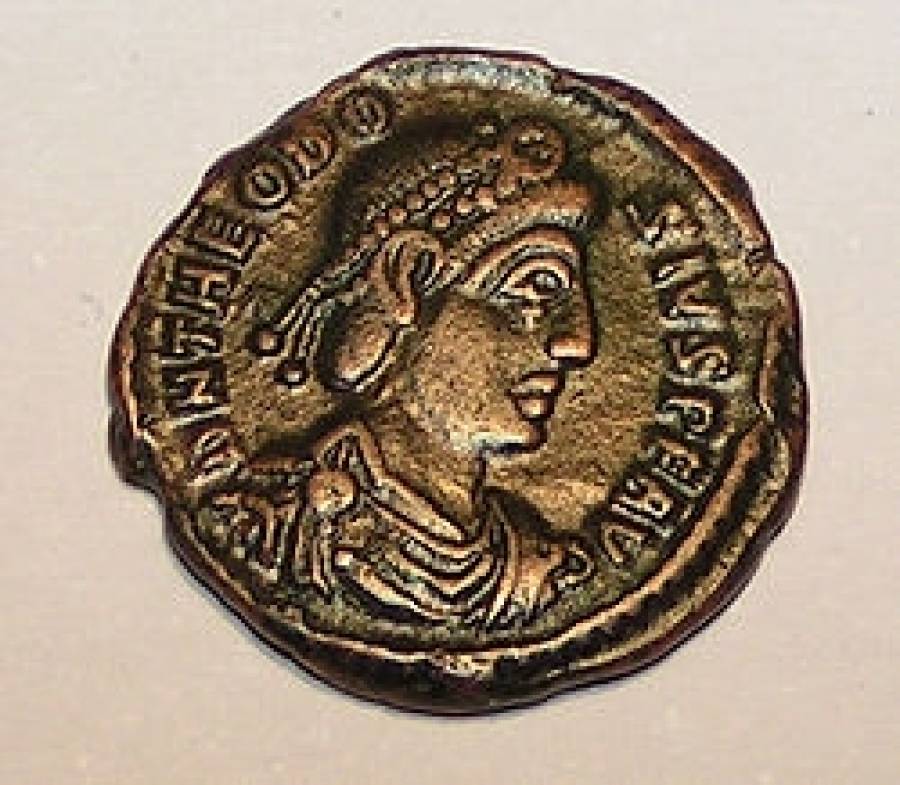
1989.
The IOC votes to disallow unofficial demonstrations at the Olympic Games, starting with the 1996 Games.
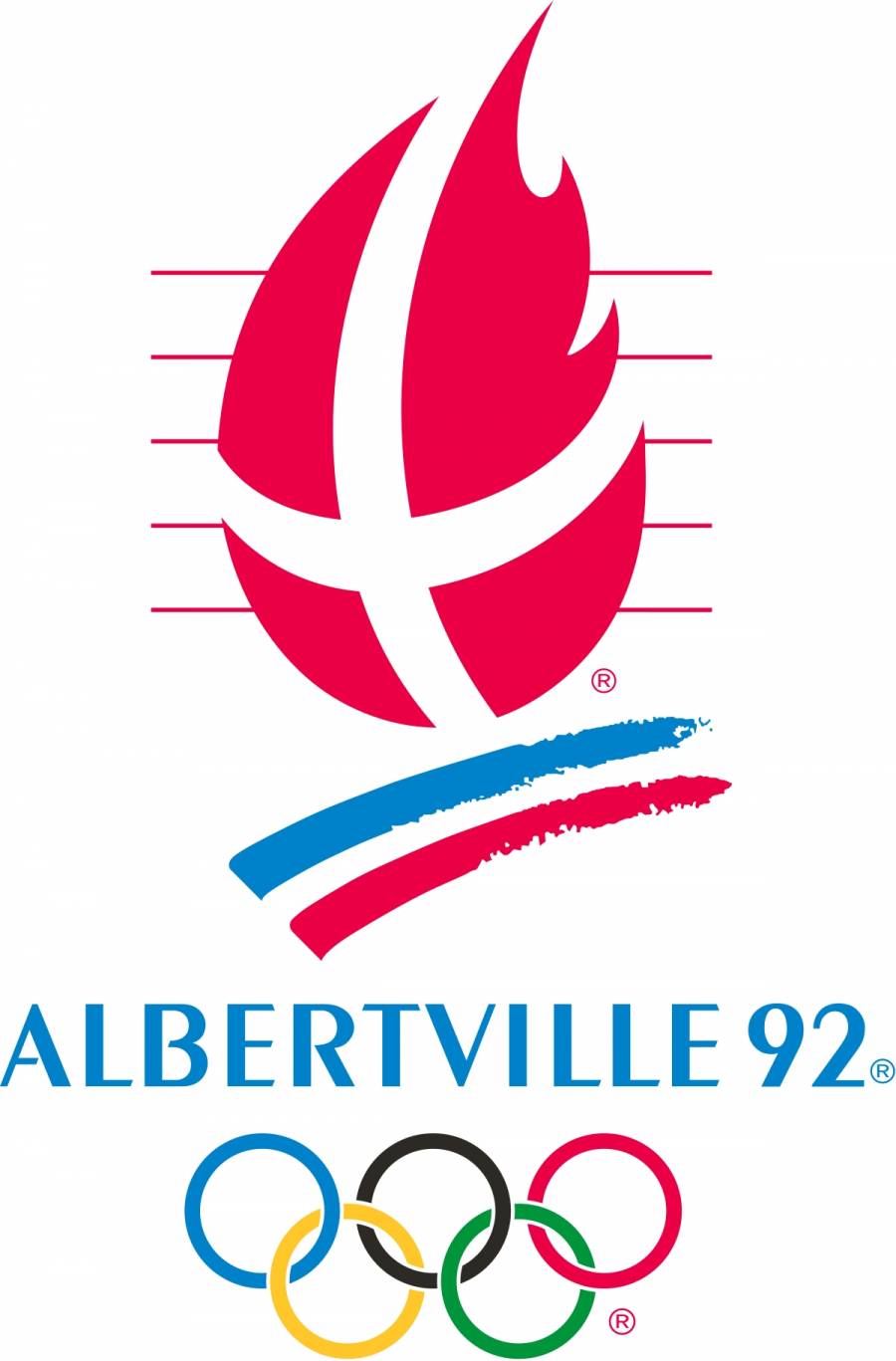
Winter 1992.
Winter Olympics in Albertville.Germany united and the Soviet Union split. Despite the turmoil, the German team and the United Team of the former Soviet republics remain at the top of the rankings.Norway wins men's cross-country skiing thanks to Vegard Ulvang and Björn Dehli.The US wins five gold medals, all won by women: Bonnie Blair in speed skating, Christy Yamaguchi in figure skating, Donna Weinbreth in freestyle skiing and Cathy Turner in short track speed skating.
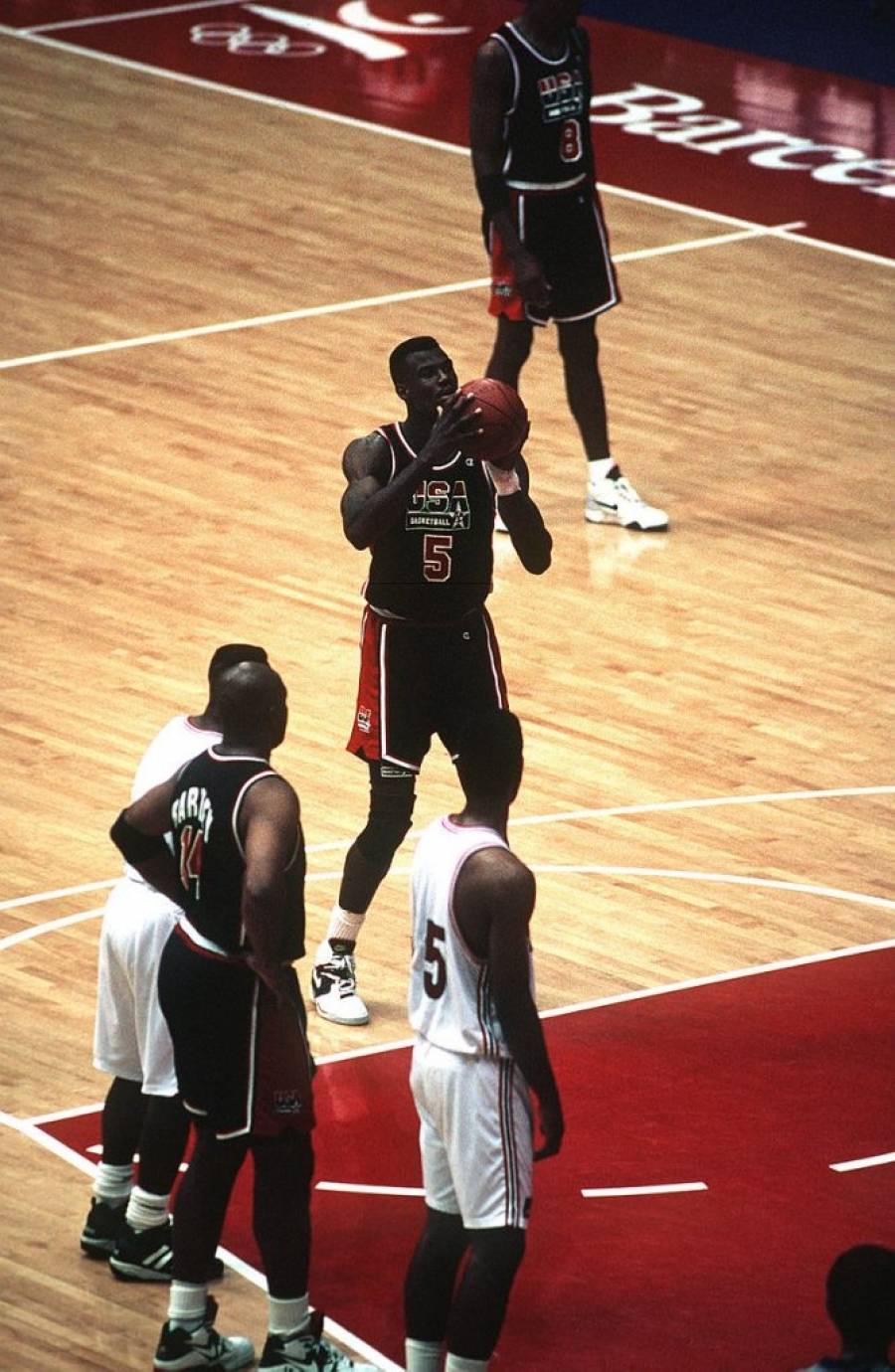
Summer 1992.
Summer Olympics in Barcelona.This is the first time in decades that all nations with their own Olympic Committees have appeared at the Games, even Cuba, North Korea and South Africa. A record number of 172 nations are participating, represented by 10,563 athletes.With the door open to professional athletes, the U.S. is sending its "Dream Team" that includes Charles Barkley, Larry Bird, Magic Johnson, Michael Jordan and Karl Malone. As expected, they are undefeated.Carl Lewis wins two more gold medals, bringing his total to eight.Thirteen-year-old Fu Mingxia of China wins gold in diving, becoming the second youngest person to win gold in an individual sport.Athletes from the World Cup are allowed to compete in football, but only three players over the age of 23 can be on a team, which has caused the Olympic discipline to be converted into an under-23 championship.Gymnast Vitaly Shcherbo from the combined Soviet team wins six gold medals in gymnastics.Cuba wins seven gold medals in boxing, and for the first time one in basketball.In the end, the Combined Team took home 112 medals, the USA 108 and Germany 82. A total of 64 nations won at least one medal each, which is the most so far.
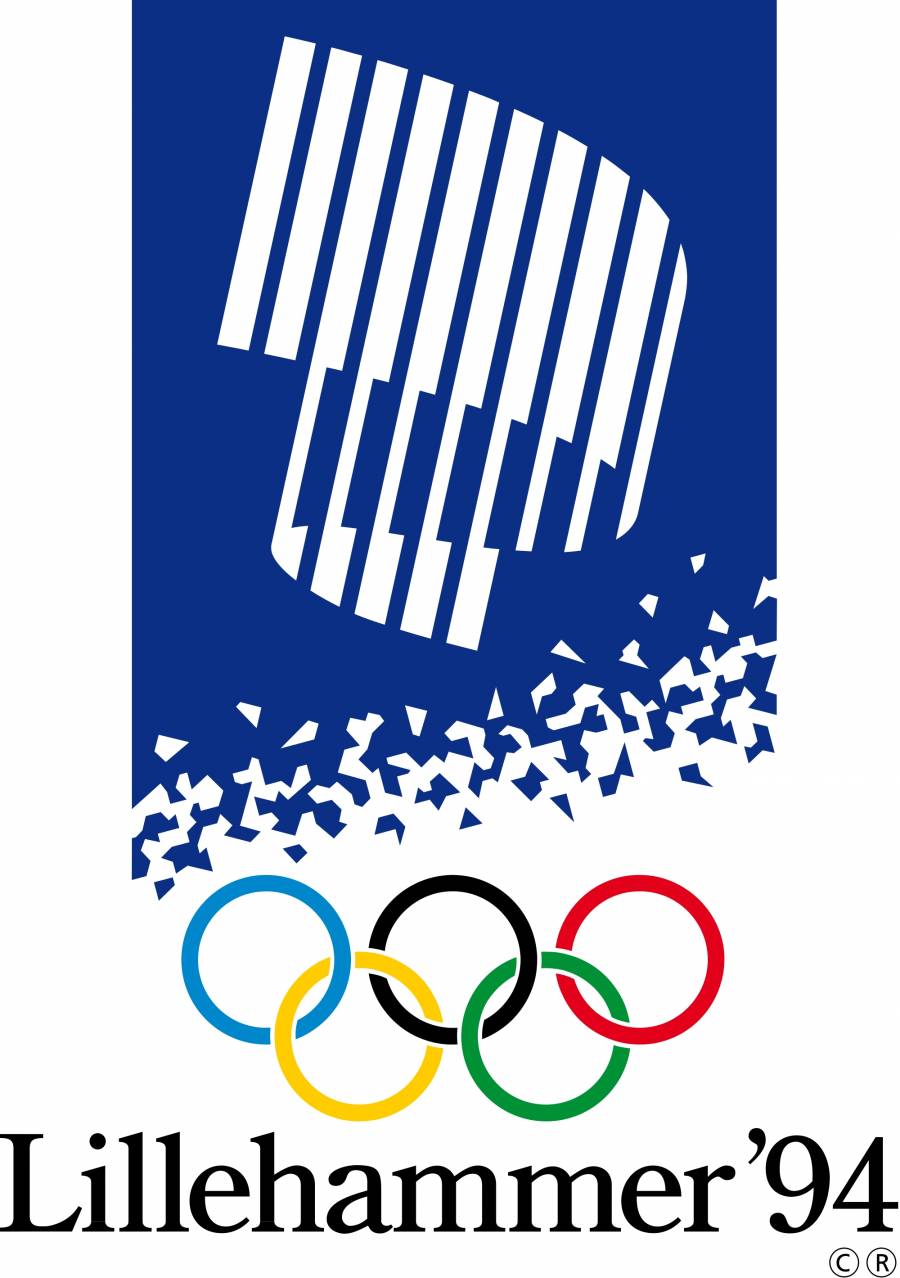
Winter 1994.
Winter Olympics in Lillehammer.These are the only Winter Olympic Games that took place two years after the previous ones.Tonya and Nancy put on a figure skating show. Nancy Kerrigan gets silver; while Tonya Harding is remembered for one of the worst performances ever. Ukrainian Oksana Bayul wins gold.Frannie Schneider, whose back injury kept her from winning anything in 1992, wins medals in three alpine skiing events, bringing her total to five.In speed skating, Norwegian Johan Olav Kos wins three gold medals, setting a world record in each discipline. Dan Jansen finally wins the race, setting a record in the 1000m. And Bonnie Blair takes two more gold medals at 500m and 1000m.Norway, Germany and Russia are at the top of the final ranking.
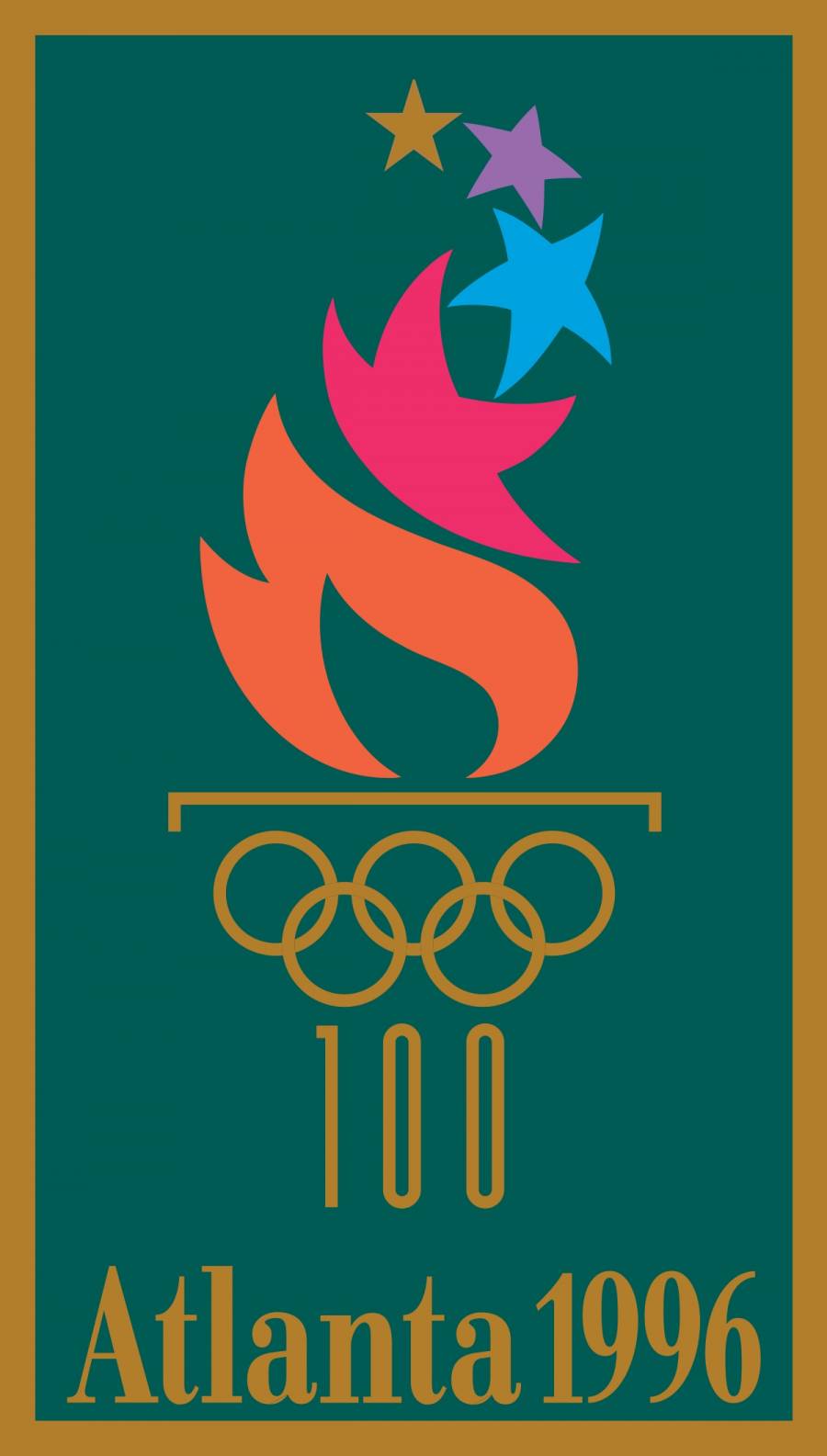
Summer 1996.
Summer Olympics in Atlanta.Muhammad Ali lit the torch at the opening of the Centennial Games. 179 countries participated; 79 wins medals.A bomb in the Olympic Park kills one and injures 111, but the Games go on.American Michael Johnson wins both the 200m and 400m races; the French Marie-José Perec did the same.Carl Lewis wins his ninth gold medal by winning the long jump.Amy Van Duken of the USA wins four gold medals in swimming, while Michelle Smith of Ireland wins three golds and one bronze. Smith was accused of doping; although this was not proven, she was suspended in 1998 for interfering with urine findings.American women's teams win softball and soccer competitions for the first time. They also win in gymnastics, with the help of Carrie Stragg who does a perfect second vault despite a sprained wrist.The United States returns to the top of the ranking, followed by Russia and Germany.
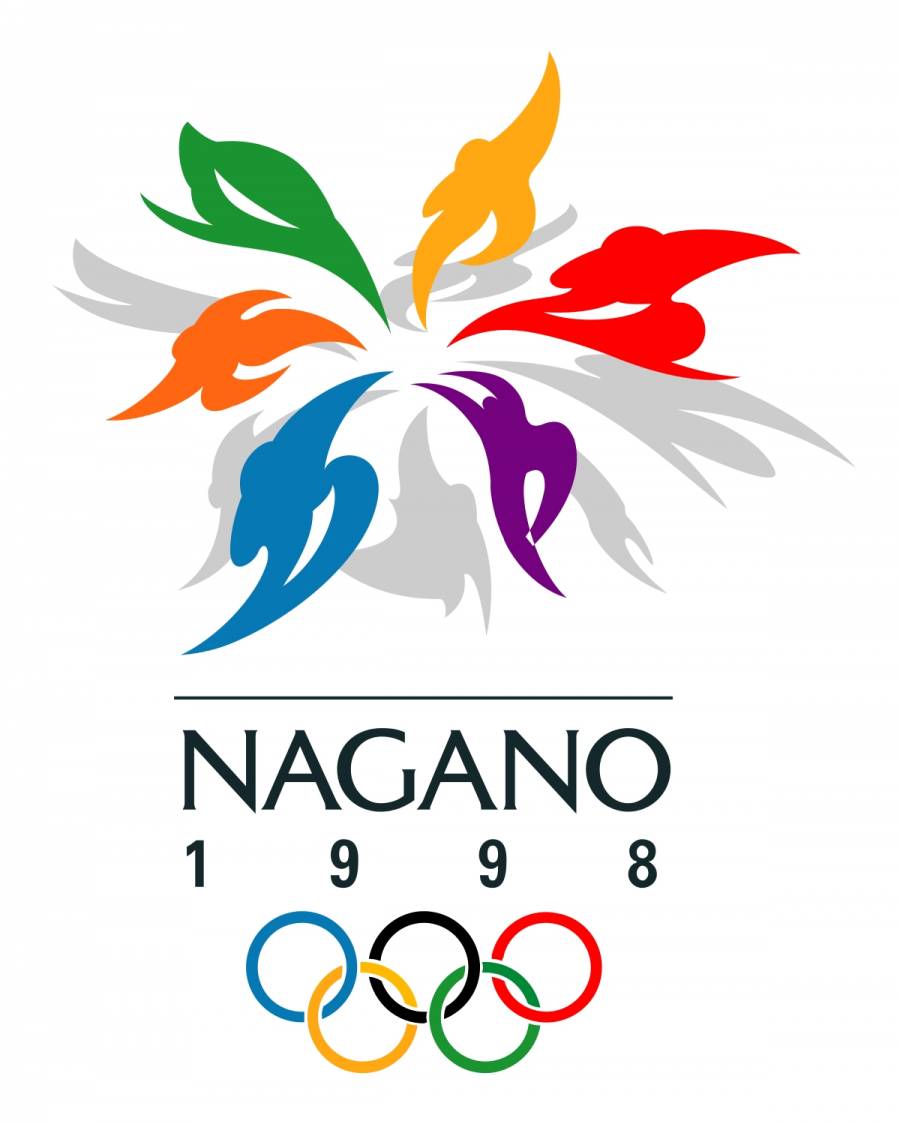
Winter 1998.
Winter Olympics in Nagano.A record number of 2,177 athletes from 72 countries are participating.Snowboarding, curling and women's ice hockey were introduced.The Austrian Herman Mayer, although he passed through two safety fences, wins gold in the downhill in the men's category.Masahiko "Lucky" Harada makes amends for his 1994 failures by helping his Japanese team win gold in ski jumping.Bjorn Daly wins three more gold medals in Nordic skiing, bringing his total to 12 medals (eight gold).Fifteen-year-old American figure skater Tara Lipinski becomes the youngest athlete to win a gold medal at the Winter Games.Ice hockey is open to professionals for the first time, and the Czech Republic is winning.Germany, Norway and Russia lead the overall ranking.
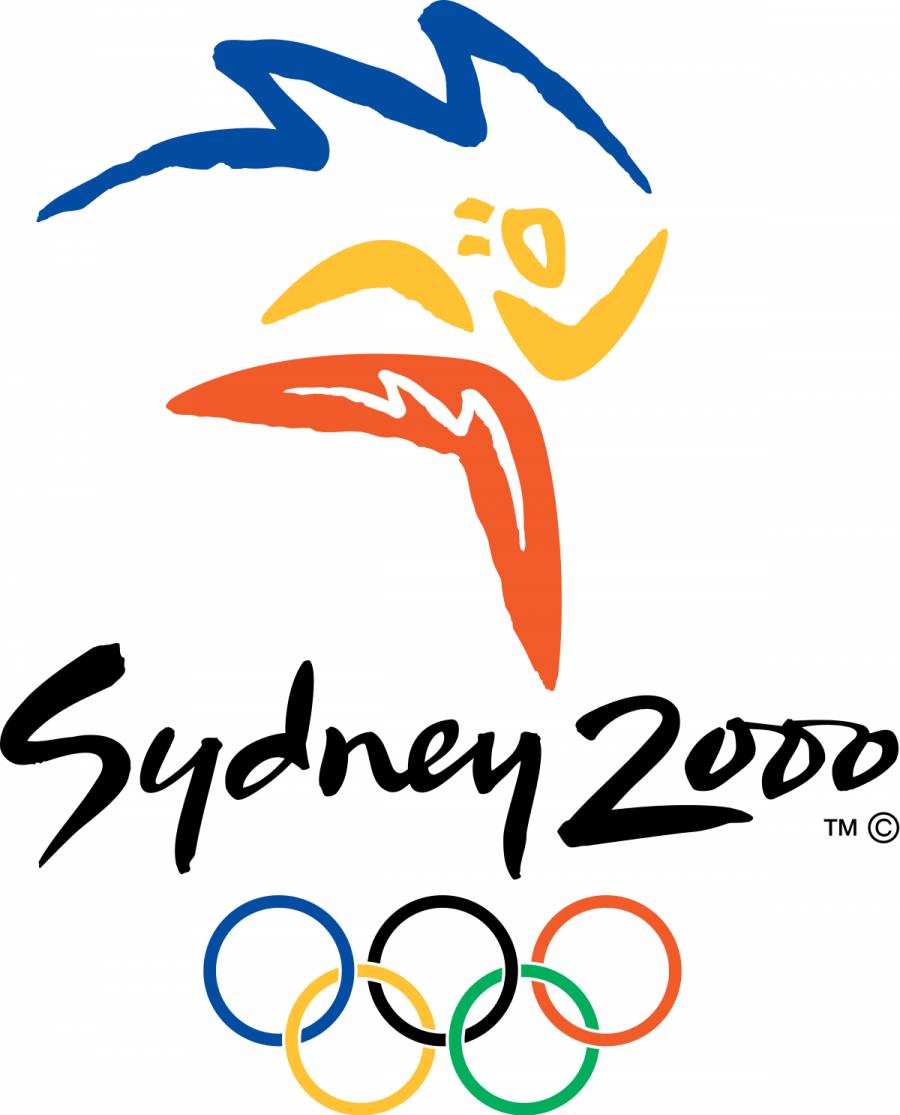
Summer 2000.
Summer Olympic Games in Sydney.10,651 athletes (4,069 of whom are women) from 199 countries are participating; the only country that is excluded is Afghanistan.North and South Korea enter the stadium under one flag.Cathy Freeman, a member of the Australian Aboriginal community, lit the Olympic flame at the start of the Games and won gold in the 400m raceBritish rower Stephen Redgrave becomes the first athlete to win gold medals at five consecutive Olympic Games.The USA softball team defends its title; Michael Johnson does the same in the 400m race.Seventeen-year-old Ian Thorpe from Australia wins four medals (three gold) in swimming, breaking his world record in the 400m freestyle.American Marion Jones wins five medals in running, three of which are gold.Russian gymnast Alexey Nemov takes home six medals, as he did in Atlanta in 1996.Eric "The Eel" Musambani of Equatorial Guinea is this year's favorite loser, clocking 152.72 seconds in the 100m freestyle. This is almost twice as much as the winner Petar van den Hoogenband.There are 165 disciplines for men, 135 for women and 12 joint disciplines. Women were excluded from boxing and baseball; men are excluded from synchronized swimming, rhythmic gymnastics and softball.The leaders in terms of the number of medals are the United States of America, the Russian Federation and the People's Republic of China.

2001.
Jacques Rog becomes the president of the IOC.
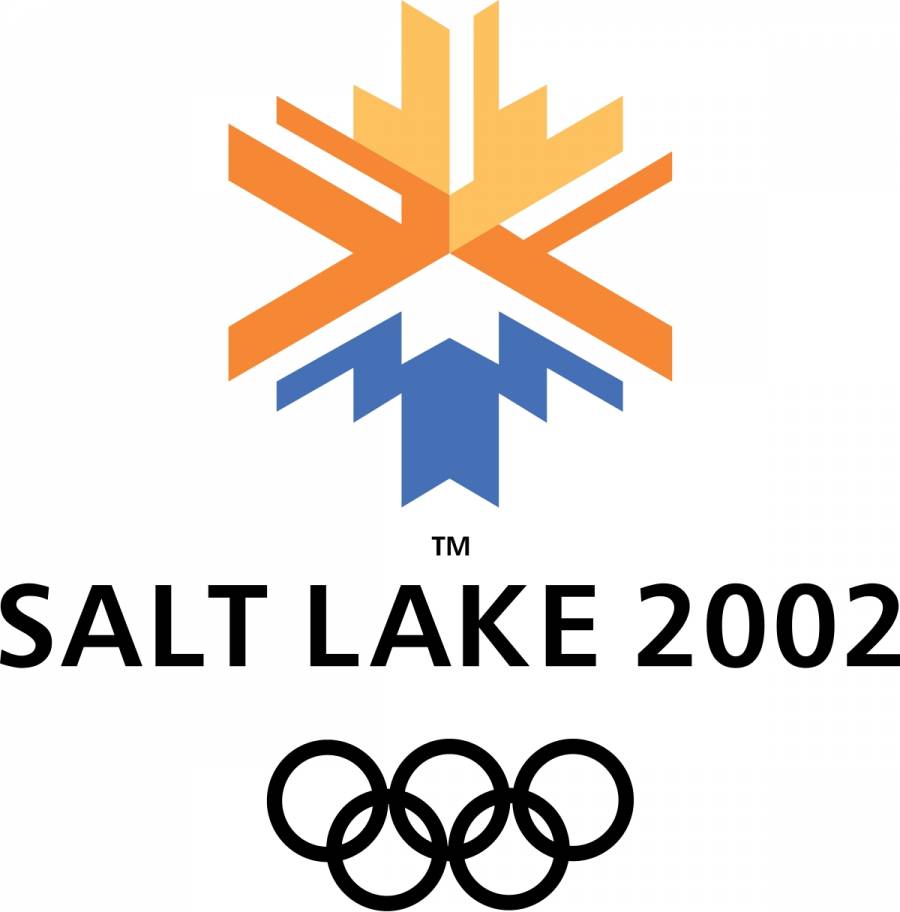
Winter 2002.
Winter Olympics in Salt Lake City.The Games sparked controversy three years before they even began, when it was revealed that several IOC officials had accepted inappropriately large gifts in exchange for hosting the Games in Salt Lake City. At least four IOC members have resigned, as have officials leading the Salt Lake City committee, amid several investigations, and the IOC is pushing for the procedure for selecting host cities to be changed.Also controversial is the US decision to include the flag that was at Ground Zero in New York in the opening ceremony. Some saw this as a contradiction of the Olympic spirit.This Games was also dominated by doping scandals. Spaniard Johan Muhleg and Russians Larisa Lazutina and Olga Danilova were disqualified for using darbepoetin; the first two lose their gold medals, even though the retained medals were won before testing.Briton Alan Baxter similarly loses his bronze medal in the slalom after a drug test, although in the end it was Vicks inhaler. Unknown to him, this has a different wording in America than in the UK. A later investigation dismissed his moral guilt, but the medal was not returned to him.In figure skating, the Russian pair of Elena Berezhnaya and Anton Sikarulidze won the gold, defeating the Canadian pair of Jamie Sale and David Pelletier. The Canadians protested, and the French referee admits he was under pressure to give the Russians a higher score, and in a unique ceremony the Canadian pair were awarded gold medals, although the Russians kept theirs.American Sarah Hudges gives the performance of a lifetime in free skating, executing two perfect triple combinations that lead her to the gold medal. This also becomes part of the polemic, when a small change in the court placement puts the Russian Irina Slucka ahead, but that protest goes nowhere.The International Skating Organization votes to radically improve the way of judging in figure skating in future competitions.The Canadian men's ice hockey team wins a gold medal, 50 years after their last victory. Their women's team also emerges victorious. In both cases, the Americans take the silver.Skeleton is a discipline for the first time since 1948; for a change, john heaton is not here to compete.German Claudia Peckstein wins two gold medals in speed skating, bringing home a medal from four consecutive Winter Olympics. Her teammate Georg Hackl takes silver in luge and thus becomes the first athlete to win five medals in one discipline. Norwegian Ole Einar Bojrndalen wins four disciplines in men's biathlon.For the first time since 1968, female athletes were not tested for gender. There are 41 male disciplines, 34 female disciplines and 3 joint disciplines.Germany, USA and Norway finish with the most medals, while Norway takes home the most gold medals.
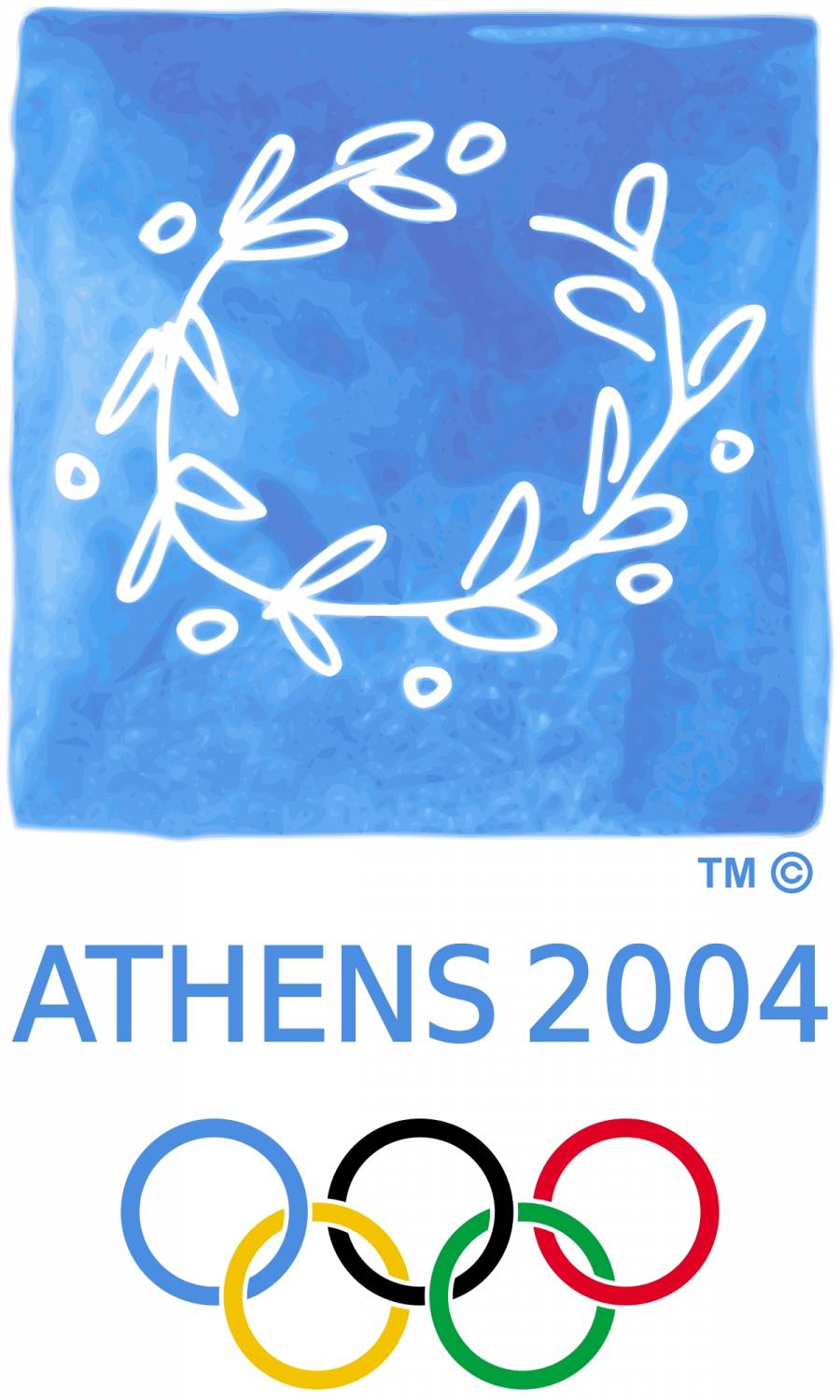
Summer 2004.
Summer Olympic Games in Athens.The Games are returning to Greece.Olympic medals get a new design, this time featuring the Panathinaiko Stadium. This corrects a mistake made by Giuseppe Casioli in 1928, when he used the Roman Colosseum in his design.Jacques Rog describes the Games in Greece as "unforgettable, dream games", which left Athens with a significantly improved infrastructure: a new airport, a new motorway interchange and a subway.The Olympic torch, for the first time, toured the world by passing through the cities where the Games were held and where they will be held before returning to Greece.The shot put was held in ancient Olympia, the site of the ancient Olympic Games (it was the first time that women competed in this place), while the archery competition was held in the Panathinaiko Stadium, where the Games were held in 1896. Women's wrestling and fencing are being held for the first time this year.The Americans won 101 medals, of which 36 were gold, China won 63 (32 gold), Russia 90 (28 gold). Greece, winning 16 medals in total (of which 6 gold), achieved the best result ever.
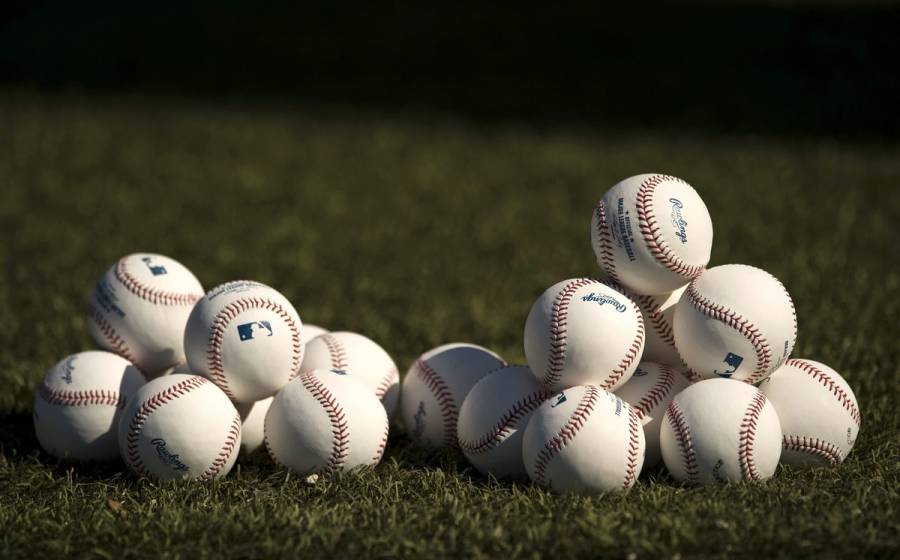
2005.
At a meeting in Singapore in 2005, the IOC decided to eliminate baseball and softball from the 2012 Olympics, the first sports to be eliminated since polo was dropped in 1936.
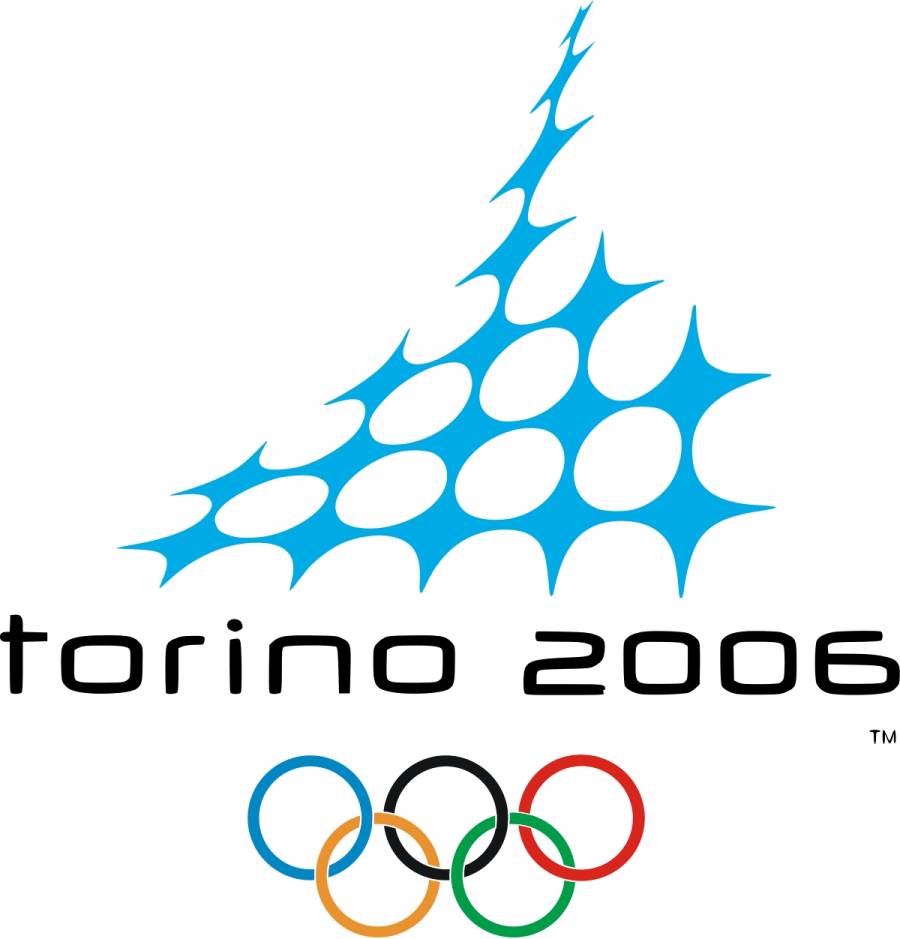
Winter 2006.
Winter Olympic Games in Turin.The second time that the Winter Olympic Games are held in Italy. The mascots of the games were a woman and a man: Neve (snow in Italian) which is a snowball and Gliz which is an ice cube.A record 80 National Olympic Committees (NOCs) participated in these games - for the first time, Albania, Ethiopia and Madagascar. These are the only games in which Serbia and Montenegro participate, because they are held between the name change in 2003 and the declaration of independence of Montenegro in May 2006.The most medals were won by Germany, 29 (11 gold), followed by the USA, which won 25 (9 gold) and Austria with 23 (9 gold).
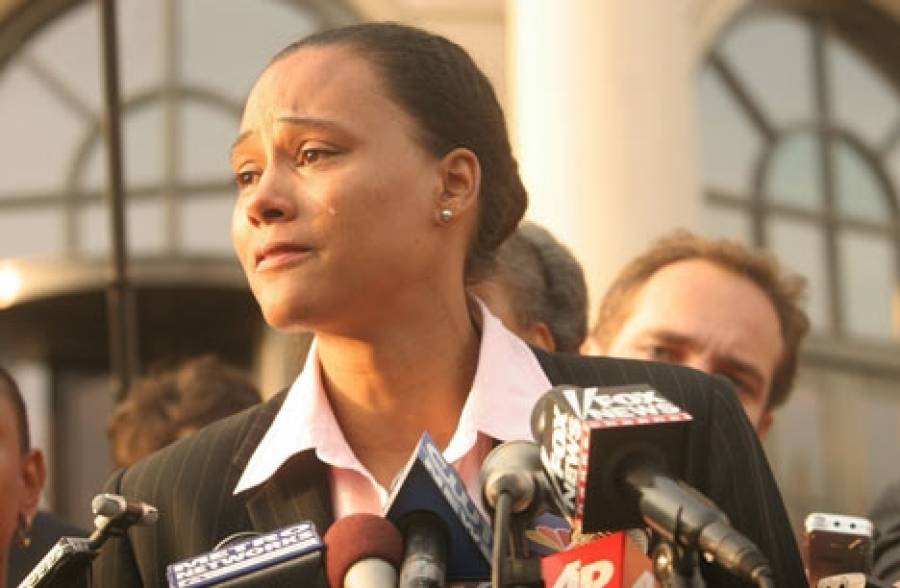
2007.
Controversy continues surrounding 2000 Olympic running star Marion Jones as she announces her retirement from running after pleading guilty to doping in federal court. Jones also admitted to making false statements during two government investigations.In November, the International Association of Athletics Federations ruled that Jones must return all medals and money, including the $700,000 prize money, and forfeit all results since September 1, 2000. Jones was officially suspended from competition until October 7, 2009.
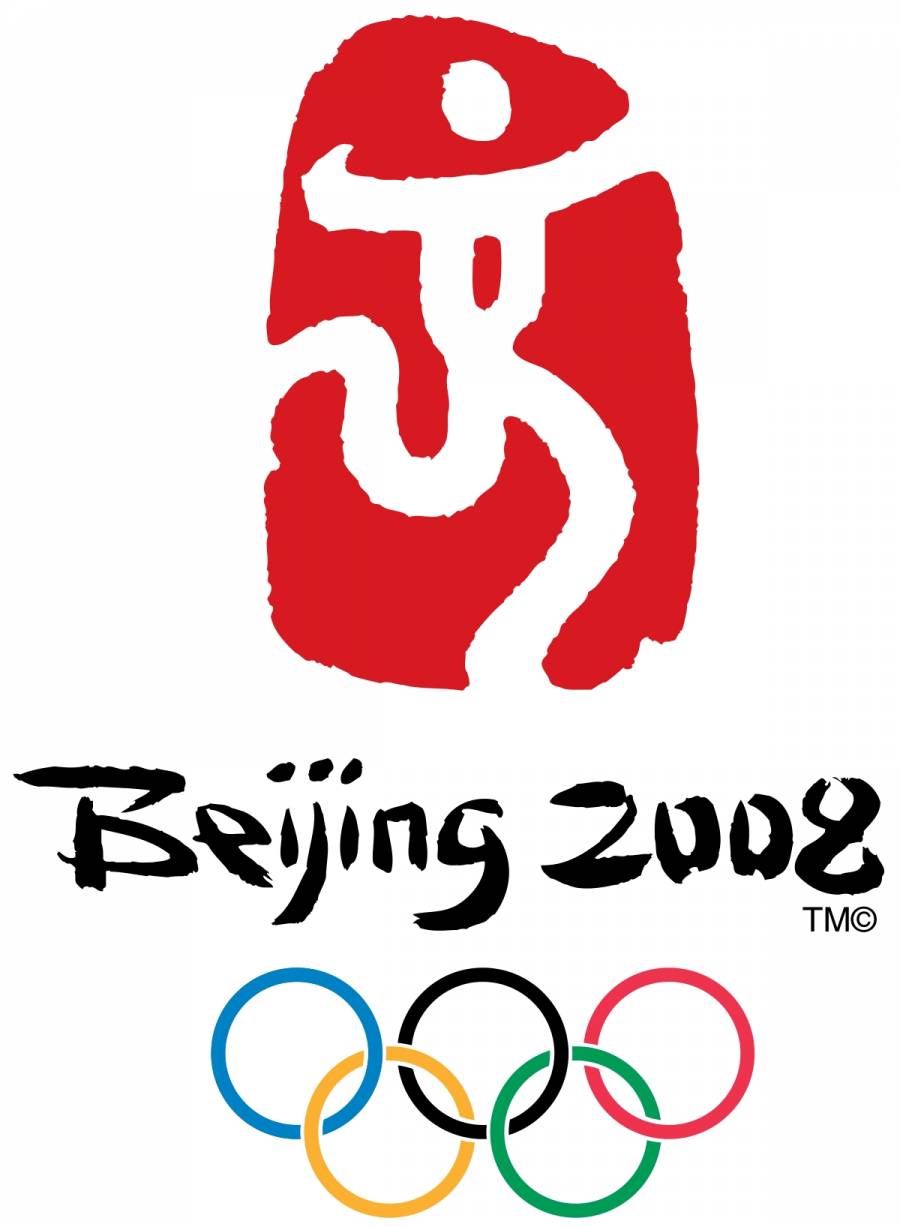
Summer 2008.
Summer Olympic Games in Beijing.Human rights activists and government officials are proposing a boycott of the 2008 Beijing Olympics because of China's economic and military ties to Sudan, where more than 200,000 people have died and 2.5 million have fled their civil war.Concerns about Beijing hosting the Games surfaced again in March 2008, when Chinese police violently quelled protests by ethnic Tibetans and Buddhist monks in Lhasa, Tibet.In April, protests by human rights activists interrupted the progress of the Olympic torch to Beijing.Beijing 2008 Air pollution in Beijing is at least two or three times higher than the levels considered safe according to the World Health Organization. IOC medical research shows that air pollution can pose a risk to athletes and hinder their performance.In an attempt to reduce air pollution during the Summer Games, Chinese officials have shut down construction sites and quarries, and demanded a 30% reduction in emissions from July 20 for all energy producers in and around Beijing.Between March 26 and April 6, Chinese officials arrested 35 members of a criminal ring based in Xinjiang for plans to kidnap Olympic athletes, journalists and others. The police found at least 10 kilograms of explosives and 8 dynamite during the raid.On May 8, 2008, the Olympic torch was carried by mountaineers on the roof of the world, reaching a height of 8,850m on the summit of Mount Everest at 9:20 a.m. local time. During the ascent, Tibetan women were the first and last to carry the torch.On May 19, 2008, the Olympic torch relay was suspended during a three-day mourning period in honor of those who suffered from the 7.9 magnitude earthquake that struck China on May 12, 2008.Authorities have announced that peaceful demonstrations will be allowed in Ritan Park, Beijing World Park, and Purple Bamboo Park during the 2008 Summer Games. Citizens must obtain approval from the local public security bureau five days before the planned protest.On August 8, 2008, the 2008 Summer Olympics began in Beijing with music, dance and fireworks at the opening ceremony.All but one of the 205 National Olympic Committees in existence in 2008 participated in the Summer Olympics (the exception being Brunei). Montenegro, the Marshall Islands and Tuvalu are participating in the Olympic Games for the first time. The Montenegrin Olympic Committee was accepted as a new NOC in 2007.The Summer Olympics ended on August 24, with the United States, China and Russia taking home the most medals. Despite the skepticism, the Beijing Games were widely hailed as a success.
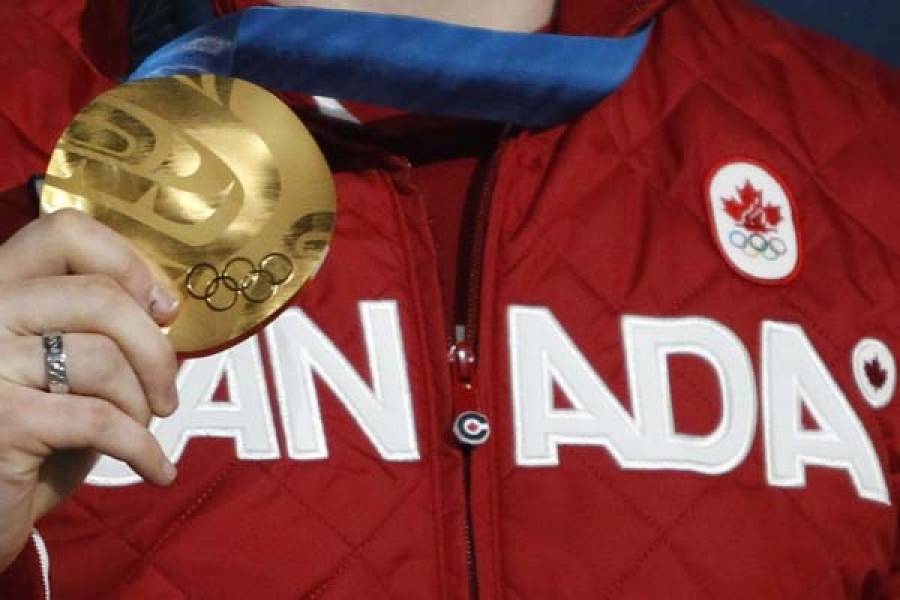
Winter 2010.
Winter Olympics in Vancouver. Shortly before the Games were to begin, Georgian luge representative Nodar Kumaritashvili was killed during training when his sled went off the track and hit a pole. As a result of this tragedy, the start of the race was moved further down the track.82 National Olympic Committees are participating in the 2010 Winter Games, and for 7 countries this is the first time: Cayman Islands, Colombia, Ghana, Pakistan, Montenegro, Peru and Serbia.While the USA led the way in medals won with 37, Canada's "Take the Podium" initiative was a success, with Canada breaking its gold medal record (host Canada had failed to win gold in the previous two Olympics) by winning 14 gold medals on home soil - a new record for a host country.American Shaun White delighted snowboarding fans with an unnecessary (he's already won gold) but spectacular trick, the "Double Twist 1260," which not only showcased his talent but also a daring attitude that improves the sport.In women's figure skating, Kim Yu-Na beat the competition with her grace and precision, bringing South Korea its first gold medal in figure skating. Canada's Joanie Rochette won not only a bronze medal, but also our hearts when, just four days after the death of her best friend and mother, Teresa, she stepped onto the ice and competed.Apollo Anton Ono becomes the American athlete with the most medals at the Winter Games, winning three, and increasing his medal count to eight.
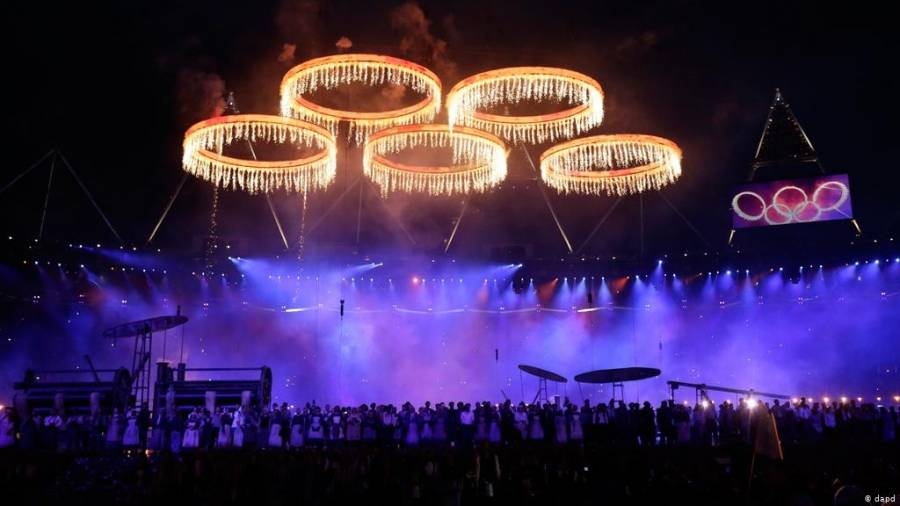
Summer 2012.
Summer Olympic Games in London.Around 80,000 people in the Olympic stadium and billions around the world watch the opening of the Games as Britain celebrates its milestones and points of pride, from the Industrial Revolution to the National Health System and Harry Potter, in a high-tech ceremony called Islands of Wonder, directed by Oscar winner Danny Boyle. One of the most retold events involved doubles for James Bond (actor Daniel Craig) and Queen Elizabeth jumping out of a plane and parachuting into the stadium.The 2012 Games were the first in which each of the 205 participating countries sent at least one female athlete.July 31, 2012Michael Phelps wins his 19th Olympic medal, becoming the Olympic athlete with the most medals ever. He broke the record held by the Russian gymnast Larisa Latynina.Phelps wins his 20th medal, gold in the 200m freestyle.Phelps ends his Olympic swimming career with another gold medal. He won 22 medals in his Olympic career: 18 gold, two silver and two bronze.Montenegro wins its first Olympic medal - silver in women's handball. In addition to her, 6 other countries win their first medals at this event: Bahrain, Botswana, Cyprus, Gabon and Grenada.Great Britain achieved its best result since the 1908 Games (also in London) and placed third. The USA ranks first with 103 medals (46 gold), China second with 88 (38 gold), and Great Britain third with 65 medals (29 gold).
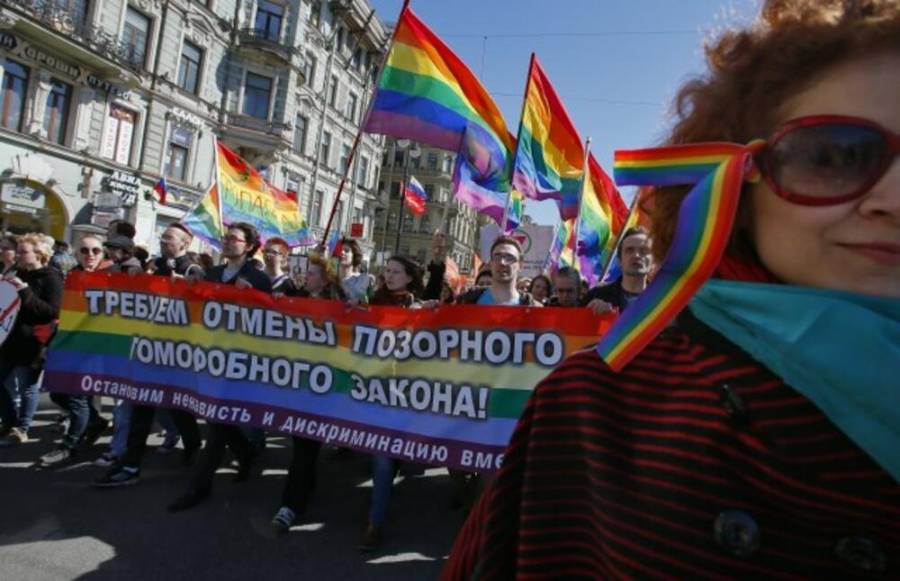
2013.
In July and August 2013, a new Russian law against the LBGT population sparked international protests and outrage. Athletes around the world threatened to boycott the 2014 Olympics in protest. The International Olympic Committee began questioning Russia to see how the country would apply this law during the Olympics. Hoping to correct the damage, the IOC announced at the end of July "that it has received guarantees from the highest level in the Government of Russia that the legislation will not affect those who participate or will be part of the Games."On July 31, demonstrators gathered outside the Russian Consulate in New York and called for a boycott of the 2014 Olympic Games as well as the sponsors of the Winter Games, throwing several bottles of vodka.On August 1, Vitaly L. Mutko, Russia's sports minister, told R-sport, the state news agency, that gay athletes are welcome at the Sochi Winter Olympics. However, Mutko pointed out that all athletes participating in the games must comply with the new law and that no athlete or participant can promote any non-traditional sexual orientation.On August 10, thousands of people gathered in London near Prime Minister David Cameron's residence, demanding that the government pressure Russia to repeal the law.On Sunday, December 29, 2013, at least sixteen people were killed in a bomb attack on a train station in Volgograd, a city in southern Russia. Close to three dozen were wounded. The next day, another trolleybus bombing occurred in the same city. At least ten people were killed and dozens of others wounded.Both explosions happened just six weeks before the Winter Games held in Sochi, 650 km from Volgograd. Never before has a host country experienced this level of violent terrorism so close to the Olympics. During the games, the government planned to have more than 40,000 law enforcement officers on standby for the event.
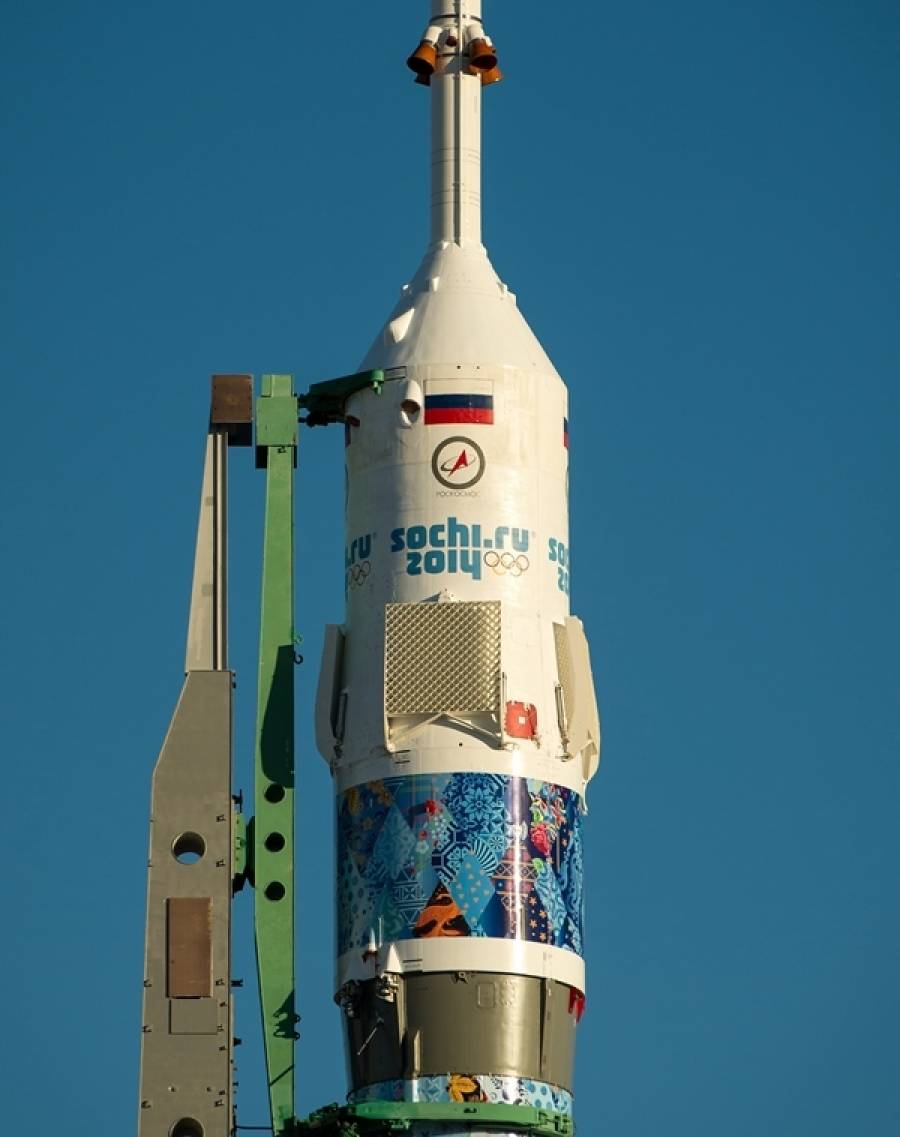
Winter 2014.
Winter Olympics in Sochi.The first Games held in Russia after the collapse of the Soviet Union in 1991. The Olympic torch travels around the world, and for the first time it reaches the North Pole, and in space (where it was not lit for security reasons).A record number of 88 National Olympic Committees are participating, breaking the previous record of 82 set at the Vancouver Winter Games. Dominica, Malta, Paraguay, East Timor, Togo, Tonga and Zimbabwe are participating for the first time.Russia wins the most medals, 33 (13 gold), Norway is second with 26 (11 gold), and Canada is third with 25 medals (10 gold). The USA wins 28 medals, but only 9 of them are gold, and they finish fourth.
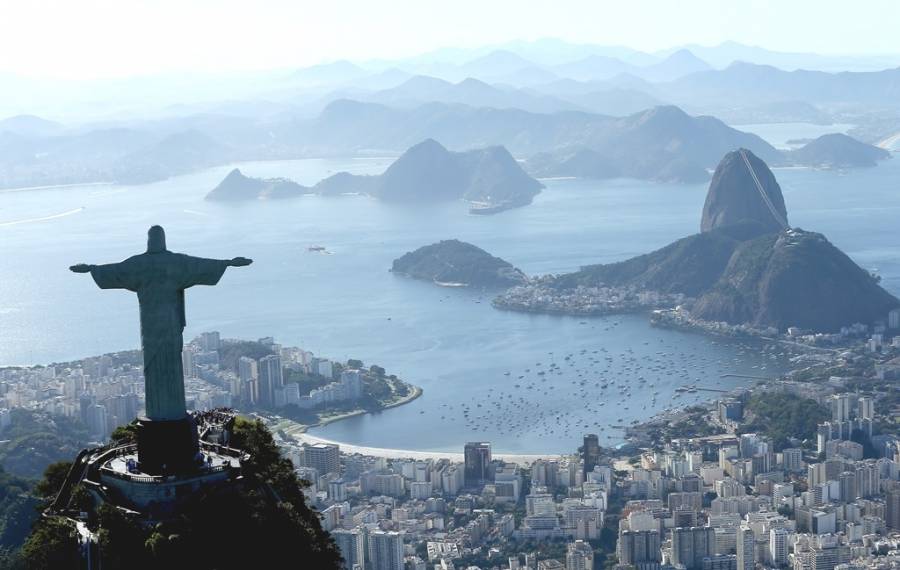
2016.
Summer Olympic Games in Rio de Janeiro. The first Summer Olympic Games that were held in South America. The slogan of the Games was "New World", which promoted the dual goal of diversity and inclusiveness.These Games were particularly interesting because of the powerful conflicts and scandals that preceded the 5th of August. The world's concern about the Zika virus prevented some of the athletes from attending the Games, as participation in them was deemed not worth it due to the increased health risk.Before the start of the Games, the Russian doping scandal was discovered, which resulted in the elimination of the entire athletics team, as well as some rowers and swimmers. The remaining athletes on the Russian team had to be individually cleared to participate.The United States finished the performances in first place with 121 medals, China in second place with 70 medals, and Great Britain in third place with only 3 medals less, 67.